WEEK EIGHT, SEMESTER TWO, 2023
But What Have You Done for Us Lately?
Misogyny in Young Politics
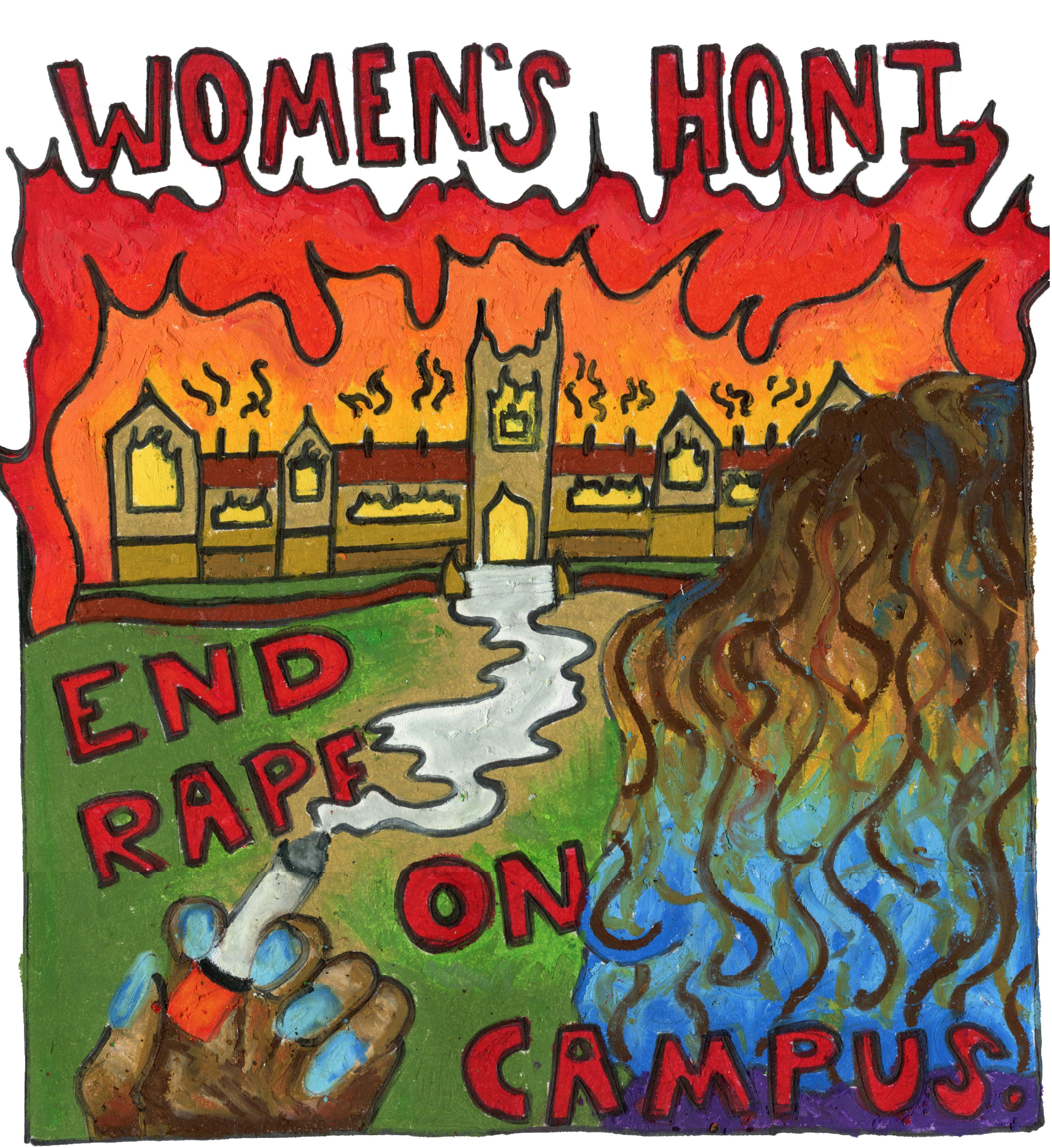
FIRST PRINTED
Sydney
Anonymous Page 10 Iggy Boyd Page 12 Katarina Butler Page 14
Sexual Violence at the University of
1929
The University of Sydney Women’s Collective presents...
Women’s Honi was written, edited and published on the unceded land of the Gadigal people of the Eora Nation. Sovereignty was never ceded and the violent and genocidal process
of colonisation is an ongoing one. Black deaths in custody continue and the rate of Indigenous child removals has only risen since Kevin Rudd’s ‘apology’. The University of Sydney is a colonial institution; Management’s decisions to purchase even more land in Redfern and reject the NTEU’s call for First Nations hiring quotas over the last year demonstrate this very clearly.
It must be kept in the forefront of our minds that the Colonial project is one which is ongoing in
Editor-in-Chief
Iggy Boyd
Editors
Alev Saracoglu, Annabel Li, Bipasha Chakrobaty, Caitlin O’Keeffe-White, Eloise Aiken, Eloise Park, Esther Whitehead, Grace Porter, Grace Street, Jo Staas, Katarina Butler, Mariika Mehigan, Mehnaaz Hossain, Misbah Ansari, Simone Maddison, Veronica Lenard, Victoria Bitter, Zeina Khochaiche
Contributors
Annabel Li, Ellie Robertson, Eloise Aiken, Gracie Mitchell, Grace Street, Iggy Boyd, Jessica Sant, Juneau Choo, Katarina Butler, Mariika Mehigan, Simone Maddison, Victoria Bitter
this country and that by extension non-Aboriginal and Torres Strait Islander women still operate in socalled “Australia”. The horrors of the Colonial regime in this country affect Black and Indigenous Women of Colour in a manner far beyond that of non-Indigenous and nonBlack women. We pay our respects to elders past, present and emerging and extend our respects to all Aboriginal staff and students at the University.

Feminist justice requires that we
Acknowledgement of Country In this edition
hold Indigenous justice to be an imperative, to be non-negotiable and non-compromising. We must continue to fight for decolonisation. Always was, always will be, Aboriginal land.
Editorial
Hello, and thank you for taking the time to pick up this year’s copy of Women’s Honi. It has been the result of a painstaking effort on the behalf of the editorial team, whose names can be found on the left. I would like to say a huge thank you to all who contributed, made art and edited, your work and contributions make up the heart of this publication. This publication is the result of a collective effort in every way.
In making this publication, I hope we are able to maintain and advance discussions of feminism, anti-colonialism and anti-capitalism on campus and continue the proud history of the Women’s Collective into the future. From discussions of how women are treated in hospitality jobs, to misogyny within religious denominations, to the Matildas and the Labor Government on Women, we hope to provide a snapshot of current feminist discourse, and ideas within our Collective and the feminist movement writ large.
We have a feature on the Colleges, which also covers the recent history of national surveys and the need for more, and more oversight of sexual violence on University campuses. End Rape on Campus (EROC) and Fair Agenda have been laying the groundwork for years, and have run an excellent campaign
Where to Receive Support for & Report Sexual Violence
National Sexual Assault Counselling Service
1800 RESPECT Redfern Legal Centre
02 9698 7277 rlc.org.au/contact
Women’s Legal Service NSW
1800 801 501 Wisnsw.org.au
Inner City Legal Centre LGBTIQ+ specialist service
1800 244 481
Iclc.org.au
Australian Human Rights Commission

1300 656 419
Anti-Discrimination NSW
1800 670 812
Access the online form to submit disclosures and complaints of sexual violence on campus to the University with the following link, or with the QR code on the right: sydney.edu.au/about-us/vision-andvalues/making-a-safer-community-forall/report-sexual-misconduct/form. html
If you need an interpreter, call the free Translating and Interpreting
that they are not to be regarded as the opinions of the SRC unless specifically stated. The Council accepts
this newspaper, nor does it endorse any of the advertisements and insertions. Please
this year to demand an Independent Taskforce to hold universities to account for sexual violence. The fact that they have managed to push so hard and so effectively for this during such a frigid and opaque process as this year’s Higher Education Accord speaks for itself.
We believe these are important ideas to share, particularly as the campaign against misogyny and sexual violence so often falls to the wayside in activist movements, on and off campus. We have come together to create this publication as a Collective year after year because what women and nonbinary people write and believe about their rights and their history shouldn’t be ignored. It should be celebrated, studied, critiqued and developed upon for the good of our shared movement.
We hope that no matter where you are, whether on stolen Indigenous land in this country or abroad, you can find something within these pages that will inspire you, teach you something new and perhaps even inspire critique in this time of deep and intense change, when the world we live in nonetheless seems to remain still.
In love and solidarity,
Iggy Boyd
2023 Women’s Officer
Service (TIS) at 131 450 and they can contact these support services for you. Being a victim does not affect your visa status and should not affect your employment status.
Editorial 2
Artists Annabel Li, Emma Qi, Liset Campos Manrique, Margot Roberts, Tin Jen Kuo 4 6 8 10 12 16 19 20 21 22 23 Rural Lesbians Women in Bars Anglican Misogyny Misogyny in Young Politics Labor on Women The Colleges The Matildas SRC Reports Caseworkers Puzzles Comedy Jo Staas Front Cover ISSN: 2207-5593. This edition was published on Tuesday 19 September 2023. Disclaimer: Honi Soit is published by the Students’ Representative Council, University of Sydney, Level 1 Wentworth Building, City Road, University of Sydney NSW 2006. The SRC’s operation costs, space and administrative support are financed by the University of Sydney. Honi Soit is printed under the auspices of the SRC’s
(DSP): Gerard Buttigieg, Grace Porter, Jasper Arthur, Simone Maddison, Victor Zhang, Xueying Deng. All expressions are published on the basis
no responsibility for the accuracy of any of the opinions or information contained within
direct all advertising inquiries to publications.manager@src.usyd.edu.au.
Directors of Student Publications
What is the Women’s Collective?

The University of Sydney Women’s Collective (WoCo) is an intersectional, feminist and activist organising group. We are active around issues of sexual violence on campus and abortion rights, particularly with regards to fighting misogyny and other bigotries on campus. We have existed for over 50 years and are continually fighting to improve the lives of students who are women and non-binary. We recognise the interconnected nature of all oppression in capitalist society and we strive to work with, and uplift the voices of, all persecuted identities, illustrating our shared struggles and our shared path to liberation. We are an inclusive and welcome space and we encourage all feminist students to get involved with our Collective.
WoCo meets and organises on the stolen land of the Gadigal people of the Eora Nation. We live in a settler-colonial state which perpetuates racial violence against the Indigenous people of this country. As such, we recognise we must centre Indigenous justice in our fight for feminist justice. As a Collective, we are deeply aligned with the First Nations struggle to decolonise the illegitimate settler-state of so-called ‘Australia.’
We fight to end rape on campus, for abolitionist feminism, for Indigenous sovereignty, for reproductive rights and abortion access, for safe housing and for an end to the Colleges. We are explicitly anti-capitalist, we understand the injustices central to the capitalist project and the individual capitalist “dream”, and we equally understand the interrelation between capitalism and patriarchy and of all those chains that bind oppressed people contained therein. Thus we wish for, and act in pursuit of, a world free of colonialism, of capitalism, of patriarchy, and of the overthrow of all oppressions that bear upon the women of the world.
We meet weekly to discuss activism, current events, feminist theory and other related topics. We also organise protests, forums on feminist politics, reading groups, social events, film screenings and more. To get involved, visit our Facebook, Instagram or Twitter, or send us an email!
Facebook: University of Sydney Women’s Collective
Twitter: @usydwoco
Instagram: @usydwoco
SRC Email: womens.officers@usyd.src.edu.au
Other Email: usydwomenscollective@gmail.com
The Coquette-to-Tradwife Pipeline
Trigger Warning: this article discusses topics including sexual violence, racialised violence, paedophilia and eating disorders.
She has liked to wear bows in her hair ever since she was a little girl. She liked pink, and then blue, but when she started listening to Lana Del Rey she realised she prefers purple. She wears her ballet flats, white and silky, to reflect the glow of the Vivienne Westwood pearls hanging around her neck. She lights iridescent candles to fall asleep, awoken only by a true love’s kiss on her glossy lips and the smell of burning lace. And so she is suspended on my screen, dripping with Chloe and alone in a sea of fresh flower petals.
class hyperfemininity.
When novelist Hannah Webster Foster labelled her semi-fictional protagonist Elizabeth Wharton as The Coquette in 1797, she associated this term with flirtation and the temptation of sexual fate. As a young woman, Wharton enjoyed “seducing” two potential suitors but would not commit to marrying either of them. Her death by the age of thirty-seven, in a roadside tavern after giving birth to a stillborn baby, was intended to provide a moral lesson for young women engaging in “sexually provocative” behaviours: that bad things will befall “fallen women.”
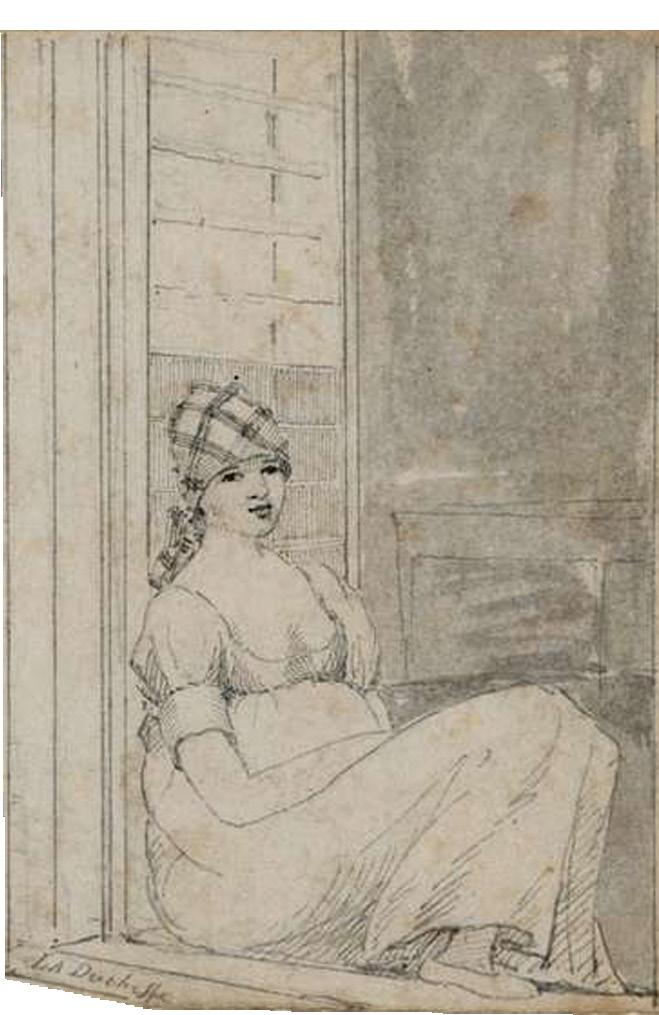
paedophilic connotations, the coquette aesthetic idolises pro-eating disorder content; ten years after Tumblr’s ban on pro-self-harm blogs, they remain inextricably connected and visible.


It is unsurprising then, that the coquette aesthetic is continuously linked to the recent phenomenon of “trad wives.”
When this vision of a young woman appeared on my TikTok feed earlier in the year, I was instantly struck by her composed and curated commitment to a new online trend. Cited by major fashion magazines like Vogue and Nylon as a “return” to more romantic and playful styles, this “coquette aesthetic” has overseen the rising popularity of heart-shaped necklaces, chiffon headbands and Brandy Melville. But these symbols are neither new nor benign fashion choices. The words in the title of this article are the exact search terms I found attached to “coquettecore” on Twitter, highlighting its racist, sexualised and misogynistic connotations. In its nostalgia for the styles of Victorianera dress and vintage Americana, this movement expresses a far more sinister resurgence of white, middle-
“Of course, the stigma and shame embedded in Wharton’s “coquette” has prompted many twenty-first century social media influencers to profess they have reclaimed this term as an emblem of femininity, sexuality and agency.”
For Kellen Beckett, it is a challenge to mainstream society’s association of “pretty things” with “being uncool”; for Duckie, this style “helps me connect to my inner child.” But coquettecore will never be truly emancipatory as long as it is founded upon structures designed to oppress and objectify women.
This brand of “girlish promiscuity” has become almost synonymous with a Lolita aesthetic. Recognisable through its use of childhood symbols like ruffles, frills and ribbons, the coquette aesthetic sexualises the innocence of young women. Beyond these obviously
Advocating for women to return to the home and “find fulfilment” in caring for their breadwinner husbands, the trad-wife movement capitalises off the same conservative values of “ideal femininity” as that of the coquette: docility, infantilization, a rejection of feminism and an adherence to heteronormative binaries. To be sure, the coquette’s sexualisation appears antithetical to the conservative family values enshrined in the tradwife. But upon closer inspection, both movements are guided by their purpose to degrade women. These two aesthetics therefore remain dependent on the rhetoric of what scholar Brenda R. Weber calls “toxic femininity”, restricting women’s behaviour to please the male gaze.

But coquettecore will never be truly emancipatory as long as it is founded upon structures designed to oppress and objectify women.
The coquette-to-tradwife pipeline is perhaps best articulated in the movements’ racialized and racist elements. Although researchers like
Eviane Leidig might argue that the proliferation of the #coquette and #tradwife hashtags on social media might pluralise the cultural diversity of content creators, both movements originate in and reproduce Whiteness. Coquettecore not only idealises white bodies and European brands contemporarily, but also trivialises physical symbols of colonial power like corsets as “fashion.” Furthermore, the trad-wife identity is often a dog-whistle to nationalist and white supremacist rhetoric; its purpose can be traced neatly as an answer to “The Woman Question” articulated by alt-right groups. Given these overlaps between race and gender, both movements’ iterations in the past and present must be articulated as intersectional issues committed to dismantling these power hierarchies in fashion and beyond.
It is only by removing our heartshaped sunglasses that we, as feminists, can begin to take the rise of such hyperfeminine and racialised popular movements seriously. Indicative of a burgeoning postfeminist culture that prioritises personal choice over radical reforms to structural inequality, coquettes and tradwives are neither novel nor ahistoric. This young woman, although immortalised in the TikTok algorithm, may still break free of this pipeline.
Art by Ting-Jen Kuo
The Myth of Marytyrdom: Women’s Involvement in the Jacobite Movement
A key challenge for feminist historians has been inserting women into histories which have excluded us. History has largely utilised sources produced in the public sphere: legal documents, public records, speeches, letters and correspondence. So how do we include women when they were largely unable to participate in this activity for much of human history? These challenges become increasingly evident as we venture further into the past, away from the identifiable ‘waves’ of feminism, and into a time when female education was an unimaginable concept.
Jacobitism was a Scottish independence movement in which the Jacobites fought for the restoration of the Catholic Stuart Monarchy to the British throne and opposed the Protestant Hanoverians. From the seventeenth to eighteenth centuries, the Jacobite Movement was a key threat to the British monarchy. It’s a history which has captured the cultural imagination: a key moment of national Scottish identity and a site of historical revisionism for England, or more recently, the selected subject matter for the popular book and television series, Outlander.
The Jacobites thrived in the underground because it was deeply treasonous, occurring at a time in which female literacy rates were modestly increasing, allowing women, albeit only the rich and powerful, unprecedented access to political circles. If one was caught engaging in Jacobite activities; from expressing sympathies, to outright contributions to the war effort, they would be subject to harsh punishments. As such the networks were pushed to the fringes, and the public sphere became dominated and surveilled by the English and a Jacobite visual
Analysis 4
Simone Maddison scrolls through the trad-wife aesthetic fawn bambi coquette Russian bimbo core Slavic girl aesthetic.
Mariika Mehigan talks to women forgotten in the archives
“No men, no meat, no machines”: The Forgotten History of Australian Radical Lesbian Separatism
The Women’s Liberation movement of the seventies has a somewhat confused place in our cultural memory. Instinctively, we might think of certain images: bra-burning, freelove hippies or dissatisfied suburban house-wives, perhaps recognisable figures such as Gloria Steinem, Betty Friedan, Simone de Beauvoir or Germaine Greer. Some think of its connection with other distinct yet interrelated progressive movements; anti-Vietnam, Gay Liberation, Civil Rights or environmentalism, or they may associate it with Gough Whitlam’s Prime Ministership. In current feminist circles this time may be considered the cause of some most insidious inheritances; biological essentialism, transphobia and the progenitor of ‘White’, ‘Liberal’ or ‘girlboss’ feminism. Notably, the narratives of today either choose to look at this time either to convey feminism’s successes or emphasise its failures.

Yet unsurprisingly this tendency erases the nuanced and wide tapestry of feminist thinking occuring at the time. The existence of Radical lesbian separatist communities in New South Wales is a history which complicates this binary distinction.
Throughout the seventies, there existed three woman-only regional communities in northern New South Wales which loosely followed the ethos of ‘No men, no meat, no machines’. These communities, named Amazon Acres, The Valley and Herland, were founded by feminists who splintered from urban-based feminist and queer collectives that proliferated in this time, who desired a place in which they could embody their politics in all aspects of their lives. The residents slept and ate communally, mainly practiced non-monogamy, spent their days farming only what they needed and made every major decision via
language emerged in order to keep the movement alive, thriving in the private. Men would have certain symbols carved onto their glassware or phrases like ‘Our Prince Is Brave, Our Cause Is Just’ sewed into their garters to keep their beliefs close to them. Women could have the same embroidered on one side of their fans, allowing them control who they hide their Jacobitism from and who they let in, subtly expressing their allegiances while avoiding the watchful eye of English authorities.
Coinciding with the rising literacy rates of upper-class women in Scotland, women were able to engage in the movement from afar. These women leveraged their wealth, networks and familial influence to contribute to the war effort, often in violent or duplicitous ways. Many sent money to
committee. Amazon Acres, the most well-known of these communities, was a one thousand acre property of uncleared bushland located near Wauchope that was purchased through donations from readers of feminist publications, such as the Sydney Women’s Liberation Newsletter, many of whom never lived on or visited the lands. The community had only about one hundred people in permanent residency at any one time, yet the land acted as a ‘community resource’, welcoming many visitors from all over Australia. These communities provided a place of refuge for queer women experiencing misogyny in Gay Liberation groups and homophobia in feminist circles. At these farms, women could reclaim the notion that the Australian bush was a site of “white masculine endeavour” and explore their identities without the threats of a patriarchal society, the toxic influences of capitalism and the taboos of homosexuality.
The politics these communities espoused are one of the most literal interpretations of the ‘personal is political’. Many residents saw each lifestyle decision as an unavoidably political one. Queer female relationships, in particular, were seen as an opportunity to dissolve socially prescribed sex roles and entirely embrace the notion of sisterhood. The “Radicalesbian Manifesto”, released in 1973, states “fucking with another woman just removes one more barrier in our minds, enables us to learn to love our woman-selves in another woman”.
In relation to nonmonogamy, the same paper reads; “we have to break down the sanctity of relationships… We believe that the primacy of genital sexuality, the idea that it is a consummation, is a male trick”. Some who subscribed to this thinking were largely unsympathetic to those in relationships with men. One claiming, “until all women are lesbians there will be no true political revolution… feminists who still sleep with the man are delivering their most vital energies to the oppressor”.
As such, many rules were established, yet few could agree on them. The “tyranny of the dissenter” plagued the communities. Some couples choose to remain monogamous while living on the farms, prompting criticism from others for being ‘exclusionary’. While the practice of non-monogmy for some proved complex and fulfilling, heartbreak became commonplace. Some desired to eat meat, remain in contact with male relatives or friends, bring their young male children to live with them, or farm using modern technology. All stances which caused
significant debate. A political lens of today exposes these contradictions even further. As the exploration female and queer identities were emphasised, considerations of race and class were largely ignored. Many would not have had the financial freedom to relocate or travel to the farm, making Amazon Acres a ‘community resource’ to those with expendable income. While occupants rejected the notion that the Australian bush was a site of “white masculine endeavour”, inclusionary of women, further acknowledgement of this as a colonial activity was never made. Nor was there an acknowledgement of their use of unceeded Indigenous land.
As the eighties progressed, the energy that these communities formerly had began to dwindle. Many became tired of the disagreements and the harshness of an Australian rural climate, eventually desiring autonomy and privacy, increasingly choosing to sleep and eat alone, enter into monogamous relationships or embark on careers which required relocation to urban centers. However, Amazon Acres in particular lives on, remaining in the ownership of the collective.
As we wrestle today with tackling many distinct yet interrelated injustices, it’s both deflating and encouraging to see how many were exploring these same questions some fifty years ago. As the notion of intersexuality we now have a more comprehensive vocabulary for marrying numerous schools of progressive thought, yet face many of the similar challenges that the residents of Amazon Acres, and other communities experienced. While few have an adequate answer to how we can ‘fix’ these issues, this history encourages us to take a more nuanced approach when we look to the past, being sure to acknowledge its failures, as well its successes.
Prince Charles and organised locations for him to stay in as he traversed Scotland in the lead up to battles. One woman, Anne Mackintosh, a member of the prominent Mackintosh Clan, defied her husband and his Hanoverian sympathies by mobilising her family’s power to raise men for the battle. Another named Lady Margaret Nairne, seventy six at the time of the second Rebellion in 1745, convinced many members of her family to involve themselves directly in the Rebellion. She hosted Prince Charles as he was travelling across Scotland and
ordered men to intercept impending attacks after receiving tips. Upon her daughter’s arrest, she wrote a letter pleading for clemency on the grounds that she was a “weak, insignificant woman”. Her daughter was known for her ruthless recruitment, threatening to burn down men’s family homes if they didn’t enlist and to execute dissenters.
These stories raise questions about how we understand and commemorate women’s history. This aspect of the Jacobite movement has been woefully
understudied in the historiography, as historians tend to prioritise the battles and their minutiae while skewing women’s involvement into a palatable story with commercial appeal. For many, when we discuss ‘Female Jacobitism’ we think of Flora MacDonald - a pious, beautiful and young martyr for the Jacobite cause. Yet this limiting narrative, once again shoehorning women into either ‘Damned Whores’ or ‘God’s Police’, homogenises the uncomfortable, complex and often distasteful human reality. Many of these ‘Damn Rebel Bitches’ were unlikeable; wealthy, manipulative and brutal women whose activity defied social conventions and contemporaneous standards of female behaviour and were, most importantly, painfully real.
Analysis 5
The existence of Radical lesbian separatist communities in New South Wales is a history which complicates this binary distinction.
Mariika Mehigan imagines a new (and old) community
Coinciding with the rising literacy rates of upper-class women in Scotland, women were able to engage in the movement from afar.
Re(creation)

Men whistle, grunt, leer. You reach over to collect a glass. You see them looking down. Do you want to be a woman? Do you want to be stared at? The men don’t get stared at. They breeze through – unnoticed. They can banter, be friends, and it’s never regarded as anything more. But for us, it’s never that. Every conversation is pervaded by this anticipation, expectation, hope that they could get more. Their eyes are heavy, their voices deep, their words slurring, they’re hungry.
The pub used to be the man’s place. Escaping you, at home. It still is. But it’s a mating place now. One doesn’t have to look further to see how gender operates in Australia. “It’s 2023,” he says. But that doesn’t mean things are better. The present supplies us with this assumption that things are better than “the past”. But in the pub, time flattens, we reach back into the past.
Eyes greedy, hands touching backs, standing taller. You don’t want to be here anymore. Do you like beer? Do you like seltzer? You’re not even sure what you like. Everything’s gendered. You hate it. Can you be feminine? Can you be masculine? What do your clothes say about you? If you wear a singlet, you’ll get more looks. If you wear a t-shirt and baggy pants and a carabiner, you’ll get more respect. Do we have to teach men how to be better? Do we have to spend our time and energy being uncomfortable for the scant future possibility we will feel better? You can’t help but feel apathetic.
You think, and think, and you can’t stop. That feeling they’ve taken away from you. And you’re crying now, at
work, embarrassed. And you’re crying all the way home. And when you close your eyes you see their eyes. Your body exists. Viewed from all angles. Can they see your nipples? Is your stomach showing? Does it look good? Do you look attractive? You want to be desired but you hate that desire. You know that women in plaits get more tips. Creepiness is profitable. You don’t know how to deal with this. Do you just accept? Or do you fight? You’re sick of feeling uncomfortable but do you make yourself feel uncomfortable? Is it your fault? Are you encouraging it? Facilitating your own objectification, infantilising yourself?
You’re exaggerating now. You go on about it too much. It’s the only thing you talk about apparently. That is, according to yourself. And when you talk about it with them, you search for their validation that these are actual issues. You can’t think of a lifeboat better than misandry. But you still need their confirmation that these are problems. That your discomfort, caused by them, is only valid once recognised by them. “What did they say to you?”, he asks. And you feel already dismissed, what can you say that will make him understand how it feels? So you exaggerate. Because you don’t know how else to make him understand.
Push it under, forget about it, ignore it. So you play the silly girl. You order your seltzer. When you carry the plates, and stack glasses, the casual comment “do you need help with that?” reminds you that you’re not okay. That you’ll never be okay. Everything is male territory, which makes you weak. You can’t carry anything. Every utterance
etches, scrawls, lining up boundaries. And you’re not one of them. You can’t trust them.
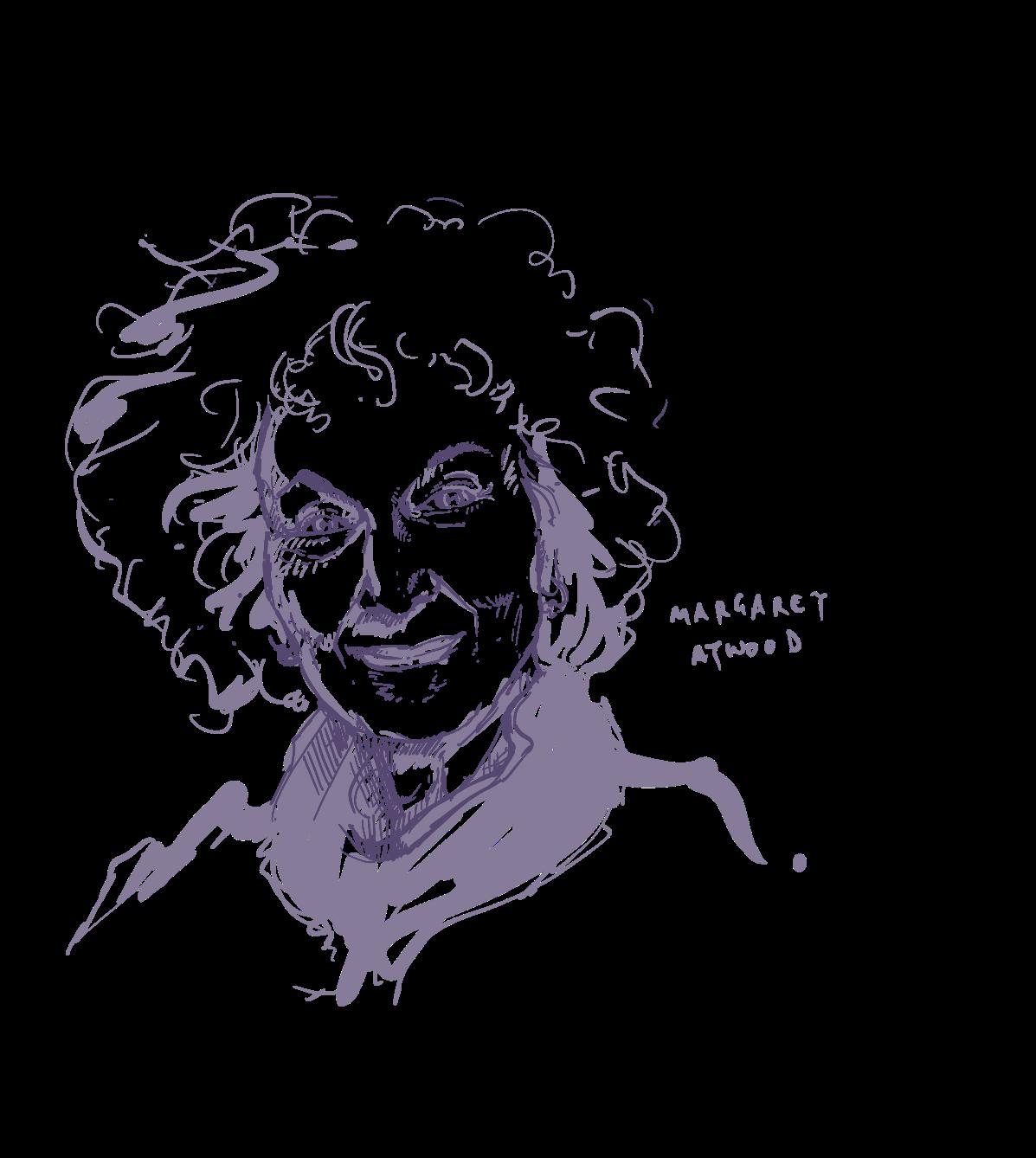
These things can’t stay down for too long. They don’t bubble up. They split and pierce you. They gurgle and foam. And you’re there crying outside work. And you’re there crying all the way home. Your body stings from where they touched you. And you can’t feel good now. It’s been taken away from you. He’s taken it away from you. He looked in shock. He said sorry. He called her sweetheart. He touched her lower back. He invited her to have a drink. You need someone to tell you that things are fucked up.
“It’s a masculine environment,” you say, trying to explain. “But there’s plenty of women around today,” he responds.
Don’t take up too much space. Don’t ask for too many things. Don’t make any errors. Don’t make too much noise. You can be judged for those things, you’re needy now. Don’t complain. Don’t say anything. Nothing will change. Nothing changes. You’re told we have to accept some level of discomfort to exist. But you don’t want to accept these things. Acceptance is aiding and abetting.
You’re not smiling enough. Your smile is painted, they paint it for you. They own your smile now. Your muscles are now theirs too, for crafting, for profiting from. Your body, clothes…it’s all theirs now. You want to shroud yourself in baggy clothes–covered, blanketed, unseen. But maybe that’s worse than being seen. If you aren’t recognised by the male
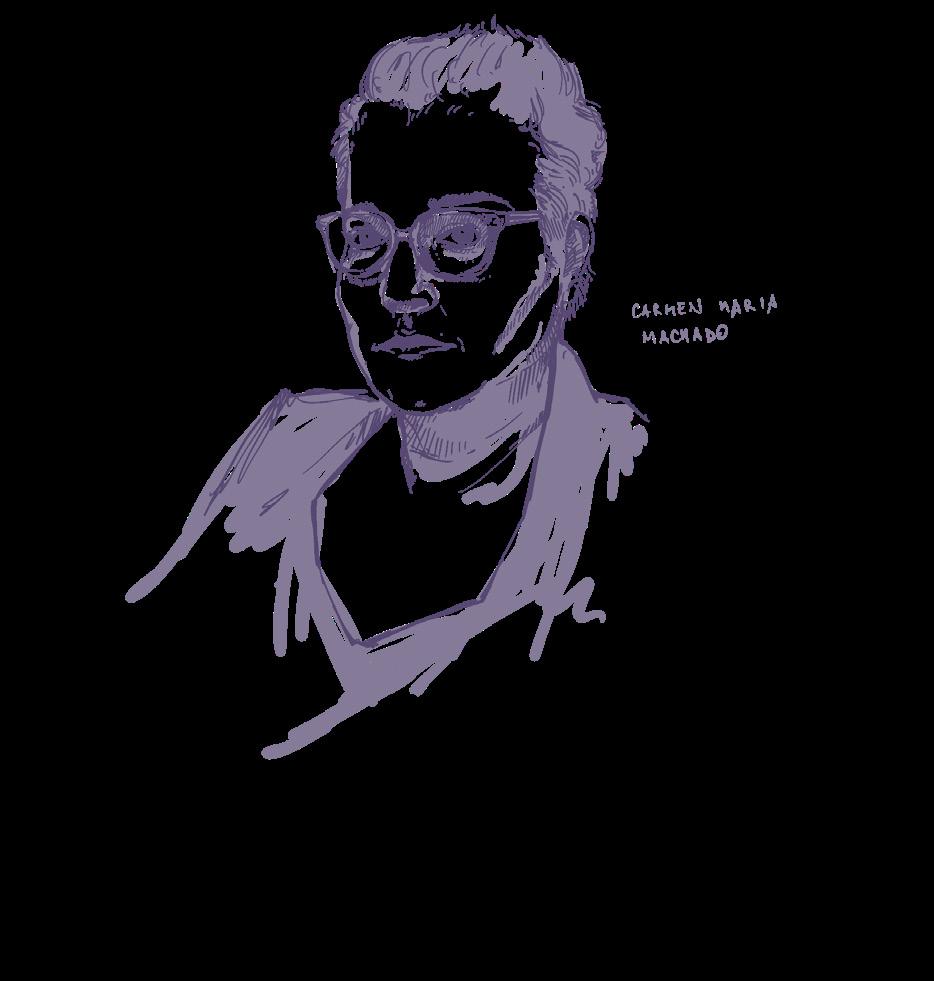
gaze, do you even exist? Are you really a woman? We are reducible to gender. Everything’s reducible to gender. But that’s so reductive.
When you reach down, you can only know that, at least one time, one of those men have thought about you crouched down. You can imagine what they are thinking. You wish you could turn my brain off. Gender is boring now. We talk about more interesting things. I’m going on again. I’m making a big deal again. I should shut up. Am I communicating this right? Is this good enough? Do you know what I mean?
Pubs make a small part of the world. And we can remake it. They make a world where ratios are analysed, where women are spiked, where women work the floor, and men work in the back of the house. Alcohol aggrandises people. Gives them the confidence to say that you’re pretty. They make a world that aids these behaviours in turn of a profit. A world where a woman can’t be at a bar alone. A world where women invite you in, as front of house, into their own oppression. A world where female managers aren’t respected. A world where spiking is an accepted danger and sexual assaults occur. And maybe we can remake this world? Right now there’s too much profit and not enough solidarity. It works for people. And it works for people not to think about it too.
But, we can make pubs better. With many people acting, at many different scales, through many different avenues, we can affect change. They don’t have to be the way they are. Don’t accept it – it shouldn’t matter what I wear to work tonight.
Magical Women: The Beauty of Femininity in Literature
History suggests that there lies a strange madness within the female experience. With Hippocrates suggesting the cause of hysteria was the movement of the uterus inside the body, he portrays the illusion that mania is exclusively an experience unique to women. By warping the binary between reason and fantasy, contemporary feminist fiction flips this notion on its head through the employment of magical realism, introducing a new vehicle through which androcentric society can be deconstructed, celebrating the intrinsic magic of femininity, however unsettling it may be.
Building off their foremothers such as Margaret Atwood, Angela
Carter, and Isabel Allende, many contemporary feminist authors use this specific brand of magical realism to explore the delusional, dreamlike landscapes long thought to be the mind of a woman. Congruent themes such as supernatural womanled cults, depictions of motherhood as miraculous, and deconstructing symbols long attributed to repressive expectations of womanhood are all common threads through which recent literary works have masterfully exposed the beauty that lies within and around the feminine experience, highlighting its otherworldly and disrupting complexities.
Perfectly portraying this concept, Canadian author Mona Awad has succeeded in telling tales through grotesque and satirical takes upon the
performance of beauty and chastity women have long been taught to uphold. Her 2019 novel Bunny follows a grad student, Samantha, as she is slowly seduced into the violently feminine cult of her university classmates, who all refer to each other as ‘Bunny’. As you travel deeper into the text, Samantha’s narration slowly distorts as she becomes as sweet and sickly as her fellow bunnies. It is a tale of women’s disruptive power, resentment towards the softened dispositions they are expected to maintain exploding into a magical terror unleashed upon others. Bunny and Awad’s other works use fantastical elements to facilitate her analysis of womanhood, subverting colonial and patriarchal desires of youthful innocence and subservience by exposing the horrors of the feminine. American writer, Carmen Maria
Machado, also utilises magical realism in her works. Her 2017 short story collection Her Body and Other Parties emulates womanhood through distorted depictions of queer love and motherhood that are paradoxically joyful and painful. Magical realism weaves through each story, deconstructing the arbitrary borders that define fact and fiction, patriarchal entrapment and feminine freedom. Throughout the collection, Machado questions whether magic and femininity are synonymous — is it not magical that wombs can form life? That our bodies can disfigure themselves into a myriad of roles? The collection’s second story, ‘Mothers’, examines this through its tale of the narrator, a single mother who is reminiscing upon the life her
Bars 6
Jessica Sant enchants the ideologies of femininity.
Victoria Bitter works at a pub.
watch this space
sure most bars have fire exits but they are no less dire or straight
sure no two bars are alike some bars do open mic and others poetry nights but they all have the same fate and are in the most dire of straits and surely this is the saddest one bar none
oh where have all the dyke bars retire where are the women in gay attire where the dynamo livewire and mitochondria that power houses whole families not nuclear and homes away from home entire and queer
oh birdcage is our last safe time i fear the bank safe as vaults from male desire on wednesdays though nights events and parties
are not brick and mortar bars but pyres of heaven locked out and down prior shine on junipero biconic and other meetings shinier than gala apples brighter than swarovski crystals and more glittery than disco balls mirroring flashes of paid event photography but

dream big bigger than liminal ritualised trances or social dancing rites in transition from sappho o clock to straight a m and gay happy hours to last call for queer beers woman wines vers vapes or switch cigs aim high higher than eventbrite tix big events bright dj lighting bigger nights out or even brighter dresses special makeup occasion hairstyles and accessories made for all tomorrows parties all next weeks festivities all futures celebs and all the worlds stages on dance floors lost for ages but found bi monthly and off happy hours to be missed waiting for our next performance lined up and dress coded come back
my dyke days gay nights and queer time in a lack of safe spaces lez places or homo homes where do dyke adjacent women and nb folk go after hours where are the l words before licensed opening and sapphics after closing time tell me
where are the femmes who inspire me and the mascs whom i admire where the fatales who plot conspire and know how to change a tyre
or gear and hold their wheel at ten and two steer and drive a manual car or bike here from lewisham wentworth point dulwich hill clyde botany marrickville petersham canterbury bankstown tuggerah rozelle summer hill eastwood anywhere but near they the ones who i aspire to be
where does sappho play the lyre where do girls play with fire where do sirens sing in choir and where do i inquire god please show me one dyke bar not another dive bar not another dine in bar not another dime a dozen bar not another dice roll or coin flip bar not another dike to rock climb or another dike barrier to hike but a dyke bar not far and on par with the best where a dyke walks into a bar with a carabiner or the bell jar and sees in the darkness a northern star its failures, as well its successes.
daughter may have had if her other mother had not left. The intrinsic magic of motherhood is celebrated in all its emotional complexities, the narrator admiring how “women can turn children into this world like breathing.” In this way, the magic in ‘Mothers’ is the mothers themselves, illustrated as fantastical, miraculous, and uniquely feminine.
Symbolism throughout Canadian writer, Camilla Grudova’s The Doll’s Alphabet takes on a distinctly womanly shape as she attacks the patriarchy at its roots, denouncing hegemonic ideals of women’s value in society through recurring magical motifs. Enchanted machines, factory work so hazardous only a woman can complete it, and dreamy and pretentious philosophy boyfriends form strange throughlines across The Doll’s Alphabet. Grudova explicitly
highlights the bonds between women in ‘Unstitching’, where “one afternoon, after finishing a cup of coffee in her living room, Greta discovered how to unstitch herself.” Greta’s male partner fears her new appearance after ‘unstitching’ herself, whilst her neighbour Maria only admires her; “Maria knew that she looked the same inside and could also unstitch herself, which she did, unashamed, in front of Greta.”
The act of ‘unstitching’ is never particularly explained. Still, in my mind, it encompasses stripping us bare, ridding ourselves of worldly values such as assets, wealth, and accomplishments, and instead, revealing the fundamental experiences that have shaped our identities the most. Whether it’s a moment we felt most scared, joyous, or insecure, I believe many of these experiences would be uniquely feminine, acting like an invisible string that ties us all together. At the end of this story,
there is an overwhelming sense of the coexistence of women in society and how our lives can so easily reflect someone else’s, a theme that continues throughout Grudova’s collection.
Machado, and Grudova are only a taster of the many contemporary feminist novelists who utilise magic to tell our stories, blurring the hostile barriers that continue to hold us back, and, in turn, celebrate

Literature
Juneau Choo
To the Sydney Anglican Diocese,


I left one of your Anglican churches in 2018, and it is undoubtedly the best decision I have ever made.
Before this is construed as a takedown of Christianity itself, I want to make clear that my issues lie specifically with the Sydney Anglican Diocese. I believe that faith and institutions can be separated, however, what I cannot stand by is the way that your institution weaponises emotions and existential fear in order to propagate a deeply misogynistic and homophobic agenda.
At twelve I fell in love with church and I quickly allowed it to become my world. I attended every event I could — youth group, Bible study, night church, youth camps. What I did not realise at the time, was how much of the teachings centred on the role of women and sexuality. I now see that the church I attended was obsessed with gender, and obsessed with sex.
I’m ashamed to say that I did not question when I was told that women should not preach in church, that in fact, they should not MC services, or lead Bible studies. Not only did I believe you, I began to shape my future around how I would serve as a woman in the church — creche or women’s ministry (teaching, but only to women, children and pre-teen boys). That’s it really. You taught me that as a woman I would be ‘saved through childbearing’, that I was a ‘helper to man’, and intended to ‘submit to my husband’.
The below are scans of notes I took in one of the many services I attended that focussed on how I, as a young girl, should dress so that I would not lead my brothers in Christ to ‘stumble’.


The below is a helpful diagram provided by the church that clearly shows what women are and aren’t allowed to do within the church.

You seemed surprised when research showed increased levels of domestic violence within the Anglican church compared to others. Yet you say that it has nothing to do with your teachings. I was thirteen when I wrote down what is pictured below, desperately trying to capture the words verbatim. It is unforgivable that that church taught that a wife should submit to a husband who doesn’t love her. You should feel deep shame for believing a brochure and a five-minute segment in a sermon is enough. I believe you blatantly perpetuate abuse by preaching the dangerous rhetoric of submission.

But it doesn’t stop with women. As a diocese you donated $1 million to the No campaign in the same sex marriage plebiscite in 2017. Whilst I was too young to vote, I sat through numerous services amongst hundreds of kids, hearing you explain why people who are ‘experiencing same sex attraction’ were simply giving in to sin, in the same way that others are inclined to lie, cheat or murder. Although, the church would refuse to use the term ‘gay’ as this would imply ‘a happy and accepting community’. Instead they used the more neutral label of ‘same-sex attracted’. They brought in a same-sex attracted preacher who brought his wife and kids, saying that as long as he didn’t act upon his same-sex desires, he would still be accepted into the kingdom of God. As a young girl figuring out her bisexuality, it was impossible not to internalise every single sermon, leaving me to reckon for years with a deep shame.

8
The below are excerpts from the Sydney Anglican brochure which was sent to all Sydney Anglican churches encouraging parishioners to vote No in the same-sex marriage vote.
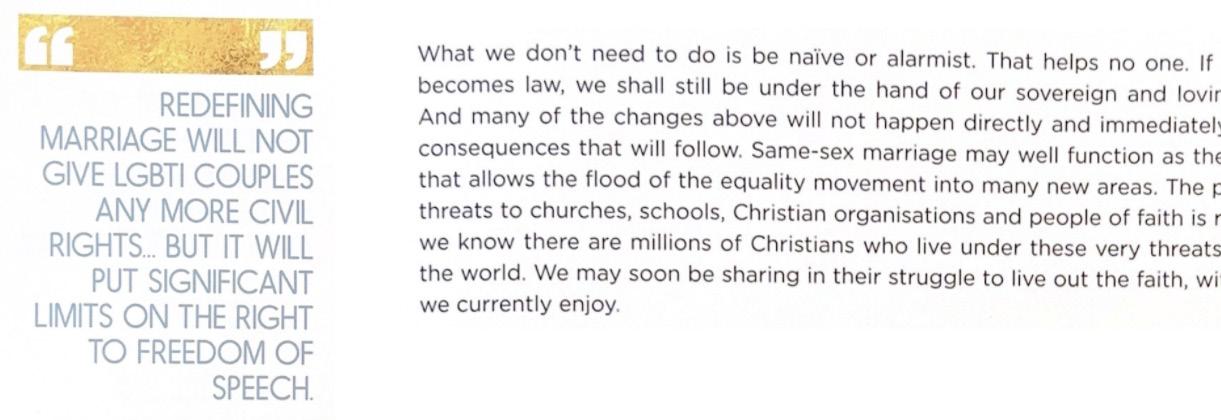

Not only did you erase the broad spectrum of sexuality in your sermons, you addressed transgender identity in a way that essentially erased them. It is shameful that you would release a pamphlet on gender roles and reduce trans identity to a literal footnote.

You taught me to reject critical thinking. Whilst you would host ‘Big Question’ nights that would tackle sexuality, gender and evolution, your answer was always ‘God is good, trust His word’. I now realise how easily you weaponised these thought-terminating cliches. If we questioned too much, this was because we weren’t faithful Christians — and only faithful Christians go to heaven. By manipulating existential fears and fostering guilt, you are able to spread dangerous messages, exempting yourselves from criticisms because of your biassed interpretation of ‘God’s word’.
When I first left the church, I felt determined to do something, to change how you operated. But what is so heartbreaking, is that you will not change. You will continue to appoint men into positions of power who affirm your beliefs. You will argue that these beliefs are unchangeable even as you watch other Anglican Diocese become more inclusive and appoint female archbishops. I wish that you would listen to women like Julia Baird who have consistently advocated for change within your churches. Yet, you refuse to give up the chokehold you have, and it has resulted in a cycle that keeps women in creche and men at the lectern.

I have found freedom in leaving your church. And all I can hope is that others can do the same.

Sincerely,
 Eloise Aiken
Eloise Aiken
9
MISOGYNY IN YOUNG POLITICS
Trigger Warning: This article contains mentions of sexual harassment and assault.
This article was inspired by numerous conversations I’ve had with other women on this subject matter. I draw from both my own and their experiences collectively. I’ve come to realise that I lead two separate lives in student politics. The first one is of unflappable optimism and elation. One where we advocate and fight for a more equitable world that prioritises people over profit. Where we celebrate our victories and endlessly wheel and deal, hatching crazed schemes over drinks at the local pub.
But there lurks a second, shadow life. One that I and every woman in young politics experiences at some point. There is only one word for it: misogyny.
There is a misconception that these attitudes exist solely in the far-right, with their insistence on traditional gender roles and their unrelenting crusade to control women’s bodily autonomy. However, misogyny runs rampant in every political space like different strains of a virus. It can remain latent for a time before viciously attacking and infecting every crevice of our organisations, not just at the University of Sydney but also in youth politics more broadly. In every corner of young politics, every woman has lived this life and has a story all too familiar.
It is the grossly lewd comments made in social settings — for example, a male colleague implying that he’d ‘cream himself’ based on a woman’s choice of clothing.
It is the constant undermining of our contributions, our causes and campaigns, especially in regards to women centric issues like sexual violence and reproductive justice, consistently taking second priority to causes and initiatives led by men.
It is the imbalance of emotional labour where women often fall into the “maternal therapist” archetype. We take up the burden to watch out for the wellbeing of younger recruits as well as facilitating the often mentally taxing “debrief sessions” with other faction members.
Meanwhile, those same senior faction members – who are also woman-identifying – are often excluded from being involved in critical decision making processes. In other words, we are given the unglamorous responsibilities of this emotional labour without having any authority or say in the direction of the organisation.
It is the accusation that you’re in bed with your male colleague, with the implication you’re sleeping your way to the top, rather than your hard work and competency being acknowledged.
It is the flippant dismissal or outright rejection of sexual harassment and assault allegations. We are constantly and painfully reminded that men would rather back up their mates instead of holding them accountable.
This is all, for the most part, tacitly accepted. We lament and commiserate together over these instances. Yet I’m still to witness anyone calling out these behaviours as they happen.
Even worse, what these isolated instances produce is an insidious culture where women are not
respected as people, equal to our cis male counterparts. Our value as a sexual commodity takes priority over our value as a legitimate political operator, let alone as whole thinking and feeling person.
Subsequently, this leads to a tacit acceptance and widespread endorsement of intimidation, harassment, sexual assault and violence towards women. The horror stories I have heard, particularly where perpetrators and predators remain within political organisations, always give me chills.
The reporting process usually goes one of two ways. Either the reporting process becomes drawn out and arduous; since the burden of proof falls on the survivor, it becomes their responsibility to present and compile evidence. This onerous process often retraumatises and triggers survivors, leaving them in an exacerbated mental state. After all that, perpetrators still remain in these organisations with only a minor slap on the wrist at worst.
Or alternatively, the organisation in question has no formal reporting process because it was not designed with survivors’ needs in mind. As a result there is a lack of any proper mechanism to expel or discipline the perpetrator at all.
Beyond political factions and organisations, misogyny bleeds into the institutions we are elected to. The attitudes our student leaders display and accept then exacerbate sexism throughout our broader communities. How can we expect our institutions and our society to not be misogynist if our own internal spaces and political institutions remain persistently
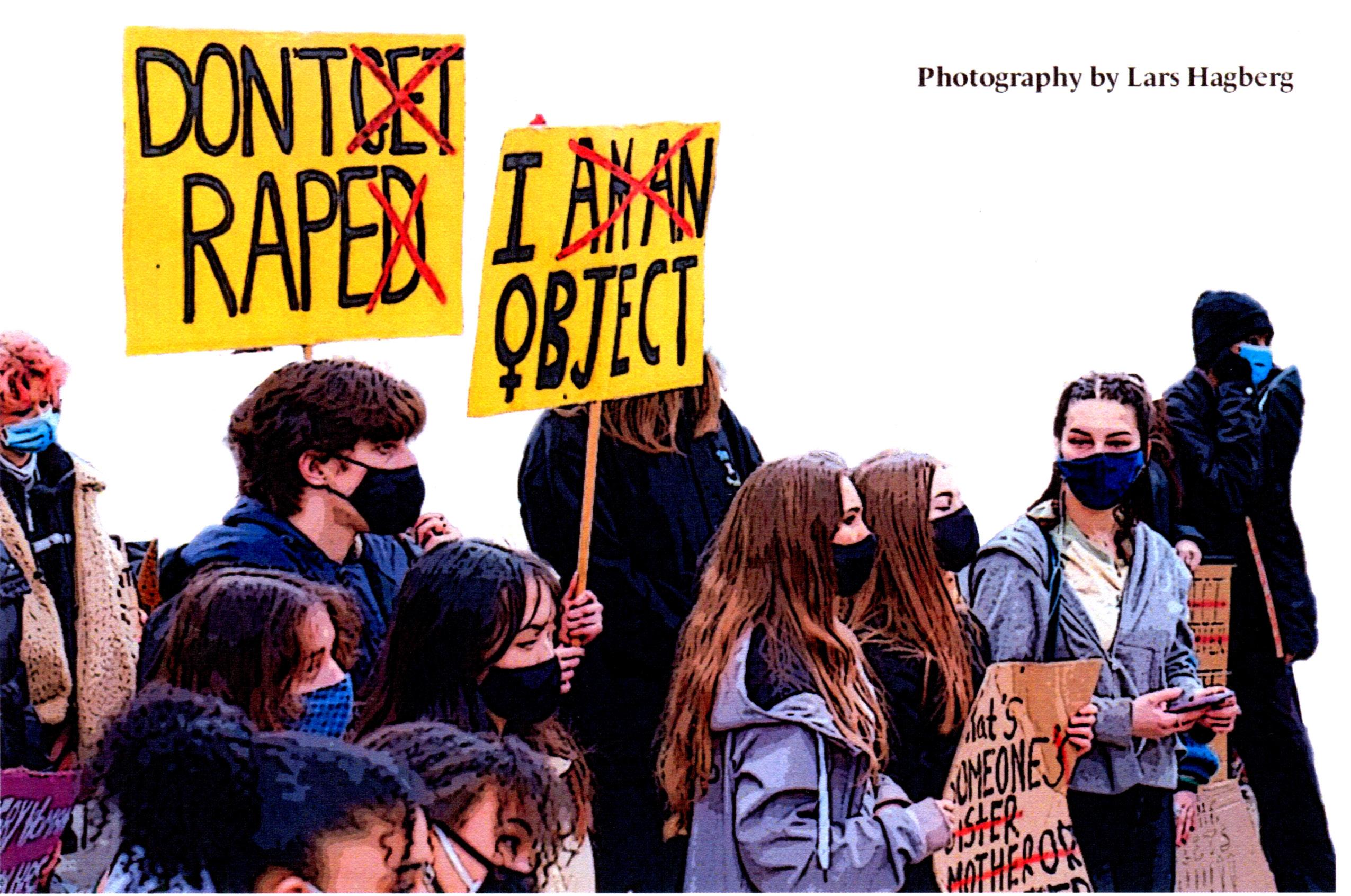
affected by it?
Moreover, it pains me to admit but many of our leaders in these spheres will become the real leaders of ‘tomorrow’. Parliament is already notoriously an unsafe place for women, with the ABC reporting that one in three staffers experience sexual harassment as well as the allegations brought by Lydia Thorpe, Brittany Higgins and Karen Andrews to name a few. Again, this culture of tacit acceptance in adult politics pervades through Australian society on a macro level.
Misogynistic attitudes manifested in both discriminatory actions and actual violence towards women will likely continue to infect our political spheres at every level. Sometimes, in my more mentally fragile moments, I question the ethics of bringing other young women into these spaces when the risks are so staggeringly high. Am I doing the right thing by them or am I simply enabling an ongoing system of oppression?
However, like I said that at the start of this article, I am still an unflappable optimist. I fundamentally believe that together we can bring about a better world. If we are ever going to cure our political spaces from the virus of misogyny we must not look to men but to each other.
Yes, we often hail from differing parts of the political spectrum and we will always have those disagreements. This is more than acceptable, as healthy disagreement and discussions can strengthen our political organising. But aside from that, we need to foster a meaningful sense of solidarity with each other and back each other up in this context. Only we can understand and empathise with each others’ experiences; only we know our needs. Our community and the world at large will never improve for women, unless we as women push for change ourselves.
I could rant for so much longer about this topic, as I’m sure many others could. We play out endless alternate scenarios of ‘what ifs’, console each other, cry together and wish for better. But it is only together, in the midst of such systemic inequality, that we can be a stronger collective force than we are as lone individuals.
Perspective 10
This is all, for the most part, tacitly accepted. We lament and commiserate together over these instances. Yet I’m still to witness anyone calling out these behaviours as they happen.
Anonymous on the pervasiveness of sexism and rejection of women’s perspective in StuPol and beyond.
Trigger warning: This article contains mentions of sexual harrassment and assault.

“She’s going to be a heartbreaker when she’s older, isn’t she?” says the old man on the street, convincing himself that he’s just being nice.
“The boys only hit you because they like you!” says every mum on the playground while you’re crying after one of the boys slapped you across the face until it stung.
“Aw, you’re a little minx, aren’t you?” says my dad, presumably without really understanding the word ‘minx’ to its full extent.
It started early. It started earlier than we might have expected. It started when our eyes began sparkling, our hair began swaying. It continued when we started to walk; when we began to talk. It continued through our earliest school days and carried through to our preteen years. It showed on the streets; in our schools; on the bus; in bars and clubs; for many, it showed at home. But our knowledge of it grew with experience. We didn’t get taught this. We had to learn through trauma, through tales from the women around us, from the uncomfortable feeling when an old stranger is leering at us, and the whistle from a car full of boys.
In saying that, the discomfort and disgust didn’t come naturally. I used to be flattered when a group of much older boys would beep their car horns at me. I took it as a compliment. Finally, I’m the girl they think is pretty, I would think to myself at 12 years old when a group of 21-year-old boys drove past and wolf whistled at me. That gesture grew old very fast. When I saw it happen to my friend’s younger sister, I started feeling the discomfort. That’s when it hit me.
It wasn’t just in the streets. It happened in school. It happened when our socalled ‘protectors’ were supposed to be protecting. I was given a set number of points in high school like an object in a game show. All the girls were. The boys would run around the school, slapping girl’s behinds. With each slap, they gained the points that were attached to the girl. Whoever assaulted the greatest number of us won. None of us thought it was wrong until one teacher (Ms. Gardner, bless her) stood and spoke about the intent behind it. Even then, there was no assembly to address, and no punishment given regarding this dehumanising game.
Of course, this was just an early sign of sexual assault and harassment. This was just the warmup. Now most of the girls in my school have had experience and trauma by the age of 15 years old.
It got worse and more common as we grew older. I noticed it most when I got to university; living alone for the first time, trying to make new friends, trying to figure out who we are and living up to the casual hook-up culture that is so incredibly romanticised and sought after. I enjoyed the hook-up culture to begin with. It felt almost rebellious after living with my parents for so many years. Until I was unable to move under a man’s body weight and the overwhelming fear of being raped flooded my mind. This was only one of my experiences with this, and scarily enough, I am only one of millions. Hook up culture became something that gave me overarching issues with self-confidence, body image, self-worth and respect.
When I told my female friends, they were almost in tears. They had empathy. They knew how it felt to be frozen under a man; how it felt to be helpless. They told me “It wasn’t your fault” or they just hugged me with sheer care and love. Either way, I felt safe at last. I was able to take a break from being a female, and just be a person. Taking all this into consideration, one of my male friends was my rock in this scenario ... he was absolutely amazing. That wasn’t the case for all of them. The change of perspective of who my “good guy” friends were was astounding after I began speaking of the incident with them.
That is only my experience of being a girl turning into a woman, and this piece is a miniscule glance into the wider issue. The issue that continues to come up time and time again is the relationship between the education system and the sexualisation of women. In my experience, the school didn’t take any action to resolve or reform the issue regarding the mindset the boys in my area had about women. They simply glanced over the fact that every single girl in my year had been assaulted, or at the very least harassed. In addition to this, one of the 5 classes I had regarding sex education was a graphic movie of a girl being sex trafficked. Every girl in the room left crying. The boys had a good rest of their day.
of sexually violent offenders who have been residents in the past — using “in the past” very loosely.
Before becoming a co-ed college this year (2023), St Paul’s College has built up a reputation of being home to the toxic culture of masculinity in the privileged that still has many people talking. One of the major issues with the continuation of these cultures is that these generations of private school children are placed in an environment where disrespect towards women is accepted and encouraged. With respect to their current placement in societal hierarchies, these men are likely to go on further and become leaders, teachers and “respectable” citizens creating a continuing cycle of hostility and perpetuation of these values onto upcoming generations.
“What?! You have such bad taste in men.”
“That’s awful... but why did you let him come over when he was drunk?”
“I’m so sorry that happened to you. Maybe you should just take a break from men.”
Once again, the blame was taken from the man, and placed right back onto me. The reason I ended up there was because of my own doing; because I allowed a friend to stay at my place; because I have bad taste; because I go for the wrong men, or I go for too many men. It was never because what that man did was fundamentally wrong. Even after all this, I couldn’t bring myself to report him. I couldn’t ruin his life, even though he ruined so many aspects of mine, for the fear that I’d be accused of giving a false accusation.
The issue lies in the ways public and private schools handle these types of situations. In high school, there are too many stories of sexual harassment, rape and image-based sexual abuse to count. If we delve into private schools specifically, it is well known that the environment of these schools are based around a culture of peer pressure, sexualisation and patriarchal values. Though this has been going on for decades, it has only recently been talked about in the media. With an increase of people going against these institutions, more accusations and stories of sexual violence continues to show, some schools (specifically in Sydney) have taken to the media to address these accusations. While these efforts are a brilliant step forward in education, it breeds the question: what about past generations.
As we know, those who attend private school are predominantly from wealthy families, which tends to lead into higher education. The University of Sydney has elite residential colleges, which tends to cost over $700 a week. Looking into Usyd’s St Paul’s College (a previously allboys and brother school to the all-girls Women’s College), there has been a prominent history
The risk of this provides a stagnation in the progression of sexual education, leading to the risk of women growing up facing the same issues in the future. This indicates that action needs to be taken within schools and in the field of education as a whole. Some of the recent changes in education have been led by former and current students, not experts in the field of consent or sexual education.The cycle needs to be cut from an early age and should not be the job of only survivors. I believe that the first way to really begin the route to respect is by ensuring offenders are punished in a way that allows them to understand what they did wrong. The more passive schools are with their actions and discipline, the more sexual violence there will be. Young girls should not have to experience violence to learn that everyone should be taught not to commit these crimes.

Analysis 11
They just hugged me with sheer care and love. Either way, I felt safe at last. I was able to take a break from being a female, and just be a person.
I couldn’t ruin his life, even though he ruined so many aspects of mine, for the fear that I’d be accused of giving a false accusation.
Ellie Robertson abolishes shitty education.
But What Have You Done For Us Lately?
The State and Federal Governments On Women
In last year’s federal election, the Liberals suffered a reckoning at the hands of conservative-voting women, who migrated to voting for Teal Independents en masse. Since then, the Liberals have attempted to address the issue of being correctly perceived as a misogynistic party in their own eccentric way: denying, deflecting and vainly monologuing at all who will listen about ‘what the Liberal party can do for women’. The Liberals offer women nothing. But the Labor party are not wont to intervene on this issue, and now that they hold both the State and Federal Governments, what have they offered women and non-binary people?

Abortion
In 2019, the year of the passing of the Abortion Law Reform Act, the Labor Party made a promise. Tanya Plibersek, speaking as then-Shadow Minister for Women, indicated that Labor, if elected, would bring to Government a policy wherein public funding for hospitals would be tied to their willingness to provide abortion care. Since then, we have seen little change and even littler improvement in the accessibility of abortion in NSW; in March this year, the Sydney Morning Herald reported that only two hospitals in NSW provide abortion services, those being John Hunter Hospital in Newcastle and Wagga Wagga Base Hospital. It goes without saying that these are not accessible for people living in Sydney. Labor failed to win the election in 2019, and have since largely refused to comment on the topic of requiring public funding for hospitals to go towards abortion care.
One can produce a whole host of polls which demonstrate that greater funding for, and greater access to,
believed that “every public hospital delivering women’s health services should also provide abortions.” The public voting response to proposed laws around restricting, or allowing, abortions since the repeal of Roe v Wade in the United States demonstrates huge popular support for accessible abortion care. Considering all this, and considering that NSW Parliament already voted in favour of abortion care under a Liberal Government in 2019, why won’t the Labor Government commit to actually improving access to reproductive health care in NSW?
The Federal Senate Inquiry into Reproductive Health Care Access passed down its final report in May of this year. It goes to great lengths to note the difficulties the vast majority of people wishing to get an abortion will find when trying to access one which is safe, timely and affordable. Despite this, the Inquiry does not determine that it must be mandatory for public health funding recipients to provide abortion care; instead it simply recommends that there should be more money for abortion care. “It is outrageous that private hospitals receiving public funding denied healthcare to pregnant people in need,” said Greens Senator Larrissa Waters, the chair of the Inquiry. She followed by saying, “[w]e could not get consensus agreement through the Senate inquiry to require private hospitals to provide abortion care as a condition of receiving public funding.”
Public funding for hospitals in this country goes to both public and private hospitals; thus, public hospitals are also not required to provide abortion care in order to receive public funding. As long as ‘conscientious objections’ are a legitimate reason for hospitals to not provide abortion care, no change in this area will ever be achieved. Further, abortion cannot just be offered in cases where the life of the pregnant person, or the health of the foetus, is at risk. Non-fatal illnesses are treated every day at hospitals; abortion is healthcare and must be accessible in all instances. The State and Federal Governments across the country must actively choose to no longer embrace cowardice around providing full reproductive healthcare for all.
Equality Bill

Since government policy towards Women includes all women, Sydney MP Alex Greenwich’s proposed Equality Bill must be
Iggy Boyd asks the hard questions.
relevant to this discussion. The Equality Bill was introduced on the 24th of August, largely seeking to update portions of the Anti-Discrimination Act (ADA), particularly with regards to banning conversion therapy and enshrining self-identification for gender identity on state documents. The ADA changes include removing exemptions which allow private education institutions to discriminate against students and employees in certain cases, and limiting situations in which religious organisations can use discriminatory hiring practices to only roles relevant to religious practice. Legal protections are also proposed to be extended to those who are bisexual, asexual, non-binary and have ‘variations of sex characteristics’, and sex workers. There is a peculiarity to the sex worker part; it would be illegal to discriminate against sex workers as a population, but not against the act of sex work. Nonetheless, positive legislative change for sex workers is an excellent inclusion and is the result of many years of activism and demands from sex workers themselves.
Beyond this, The Equality Bill seeks to legislate the capacity for those 16 and above to consent to medical and/or dental treatment. This is particularly of importance to young people seeking gender affirmative care, although those under the age of 16 still need a counsellor to sign off on any treatment. It would also remove the requirement to undergo surgical procedures which change sex characteristics in order to alter state records of your sex.
On the problematic side, it would establish a lawful criteria for discrimination against transgender people in sport from the age of 12 onwards. It also fails to include legislation around outlawing medically unnecessary procedures on intersex children.
The State Labor Government has indicated it will not support this bill; it seems they intend to put it through the State Law Commission first. This would take a long time and seems tantamount to a delaying tactic; it also fits with NSW Labor’s strategy throughout their time in office, which is to commission a review first and act at an unspecified date much later, or never. Queer activist organisations such as Pride in Protest have expressed their desire for the bill to be passed immediately, with amendments to strengthen it, and have demanded further protections for sex workers,
Government 12
intersex people and queer people generally to follow. There are concerns that Labor may wish to include religious exemptions for conversion therapy bans, which would undermine the purpose of the legislation.
University Sexual Violence Taskforce
For much of this year, End Rape on Campus (EROC) and Fair Agenda have been running a campaign for a Federal Taskforce to oversee, and combat, sexual violence on University Campuses. On Thursday the 14th of September, a report was tabled from the Inquiry into Consent Laws led by the Senate Legal and Constitutional Affairs References Committee. A crossparty committee, its recommendations included the following:
• That a third National Survey on Sexual Violence on campus be conducted, including students from age 17. This would be the second National Student Safety Survey.
• That the Commonwealth Government commissions an independent review of TEQSA’s (Tertiary Education Quality and Standards Agency) response to sexual violence on University Campuses.
• That the Commonwealth Government immediately implements an independent
taskforce with strong powers to oversee Universities’ policies and practices around sexual violence, and to respond to sexual violence on campus and in student residences.
The recommendations were unanimous, despite Liberal Senator Paul Scarr chairing and three of the six overall members being in the Liberal Party. As these are simply recommendations, we must wait to see whether they are taken up by the Albanese Government. Nonetheless, to not take on these recommendations would be a very active decision by the Federal Labor Government to ignore this issue. In the meantime we may be cautiously optimistic that real oversight of sexual violence on campus across the country could be a reality sooner rather than later.
Further recommendations from the Consent Laws Inquiry include:
• For the Commonwealth Government to ‘assess’ the success of ‘pilot projects for specialised and trauma-informed legal services’ and fund them further if they are assessed as successful.
• For the Attorney-General’s Department to developed a ‘National Sexual Violence Bench Book’, specifically addressing rape myths, for ‘judicial officers’ to respond better to sexual

violence
• Furthering the inclusion, and consistent assessment, of affirmative consent laws across the country.
Beyond the positive recommendations around sexual violence on campus, the Inquiry provides relatively little as to addressing sexual violence in broader society.

This is only a brief summary of the issues concerning women that have been broached by Parliament and the Labor Party this year, as discussion of the new updates for the ‘National Plan to End Violence against Women and Children 2022-2032, and discussion of Labor’s largely hostile approach to union campaigns in feminised industries like nursing and midwifery, are beyond the scope of this article. Nonetheless we see, as we have seen time and time again, that governments of any stripe will overlook the concerns of women and non-binary people until they are forced, by public pressure and popular movements, to act. Feminist activists must understand this, and understand that Government approaches the concerns of Indigenous people, workers, migrants and more in the same manner. Feminist activists understand well the
Chinese Foot Binding
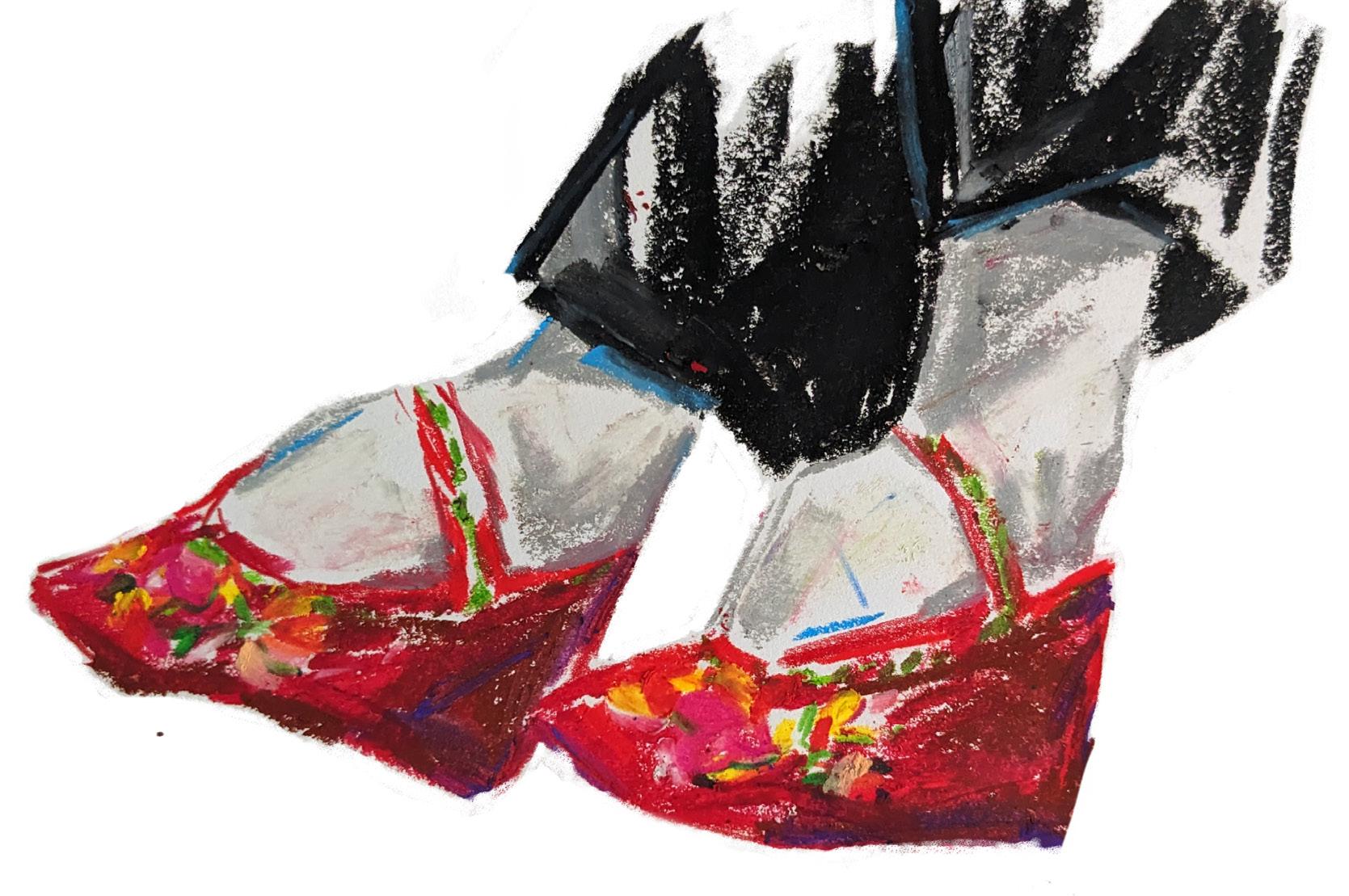
struggle of fighting for one’s rights when people across identity barriers don’t seem to care; this is all the more impetus for feminists to engage in and support all movements for liberation, to illuminate all areas of society with feminist politics and to demand feminist justice until none can feign ignorance as to its need.
Art by Emma Qi
“The violent mutilation of the feet eliminates boundaries between human and beast, organic and inorganic. It sweeps away barriers that usually divide mortals: wealth, age, sex, and so on. Violence renders the feet sacred. Naked, they become taboo for men. Women guard them as if guarding their lives. It also gives them the power for healing and cursing. All the tears and pus, all the decay and broken bones are hidden under the elaborate adornment of the shoes, which are never taken off, not even in bed. Yet violence is traceable everywhere: the odor of dead flesh seeping through the bandages, the tiny appendages that barely support the frail body.”
Wang Ping, Aching for Beauty: Footbinding in China. 2000.

Government 13
Because it is my name!
I recently found myself at a reunion of my Catholic girl’s high school. It is a long story as to how I ended up there but suffice to say, it was a fun afternoon. There in the hall of my old high school sat women from the class of ’64 laughing about their geography teacher; young mums cradling their two-year-olds as the latter cried through speeches; and myself, biting into a delicious homemade scone. Amongst the laughter of recollections and cries of infants, not to mention the taste of raspberry jam, I couldn’t help but notice my fellow alumnus’ name tags.



Daly (née Hall).
Chan (née Doyle).
Joseph (née Allan).
The prevailing presence of ‘née’ stood out. As a young, inner west woman of the 21st century, the term ‘née’ is not a common occurrence for me to see when reading a name tag. Sure, some of my friends’ mums had the same surname as their husbands and both of my grandmas and many of my aunties changed their surnames after marriage. So, it was not new for me. Nevertheless, the dominance of ‘née’ started to bug me. And I realised why when a fellow ex-student started to make a speech. It was a speech about recollections from her time at the school, how things had changed yet stayed the same. We all listened with interest.
Yet, it wasn’t until this speaker revealed her maiden name – her ‘née’ name – that the other ex-students in that school hall remembered exactly who she was, who her sisters were, and who her parents were, the latter being a familiar presence in the school’s P&C during the 1980s. It became crystal clear to me then, like never before, that a woman’s surname – indeed, anyone’s surname – forms our identity. Our surnames give us recognition within a community, similarity with our siblings, and a connection to our sense of self. John Proctor’s famous proclamation in Arthur Miller’s The Crucible epitomises this: “Because it is my name! Because I cannot have another in my life!” Yet, many women do have ‘another’ surname in their lives.

Changing one’s name after marriage has only been a custom for women of Anglo cultures since the Enlightenment. Contrary to popular belief, before the mid 18th-century, many women held independent surnames from their husbands. Women’s surnames could have epitomised a key personal characteristic or trait, an occupation, or status in the community. However, the onset of the Enlightenment saw the definition of ‘citizenship’ change remarkably, particularly in England. As scholar Deborah Anthony notes, a woman changing her name after marriage in the English context was “employed to reinforce a patriarchal regime which deceptively claimed that the natural order… [and] supported the current male-oriented surname system in its creation of new systems of rights and identity”.
Indeed, ideas of citizenship became strongly tied around imperialism, industrialisation, and property. Married women in Anglo cultures now became “Mrs. Their-Husband’s-Surname” while their children “Child Husband’s-Surname.” Moreover, most young girls grew up with their father’s surname before being expected to take their husband’s surname once they were married; marriage was the expectation for young women of the Victorian era. Combined, these name changes reflected the property laws of this time. Indeed, it wasn’t until the end of the 19th-century until women in England, for example, did not have to relinquish their property and rights over their children after marriage.
Until the 1970s in Anglo cultures and some Asian cultures, it was bizarre if women did not change their name after marriage. Catalysed by the onset of the Women’s Liberation Movement in the 1970s, many women started to question the patriarchal nature of name changing, starting a trend in keeping one’s original name even if they married. This mirrored the naming customs in several other cultures and religions globally. For example, it is custom for Muslim women and women from South Korea to keep their surnames after marriage; in Greece, France, Italy, and The Netherlands, laws were put in place in the 1970s that forbid women from changing their surname after marriage; and in Spanish-speaking countries, as my Argentinian friend explained to me, it is custom for women to keep their surname after marriage. This consists of two surnames — one name from their mother and one from their father.
Yet, name changing upon marriage remains popular even in the 21st-century, particularly in the Anglosphere. A national survey carried out in Britain in 2016 found that 89% of women who participated had changed their surnames after marriage. What is even more striking is that 75% of the youngest age group who participated in this survey – 18-34-year-olds – changed their surnames after marriage. In a similar survey conducted in the United States, it was found that 70% of female participants took their husband’s name after marriage.
I am not saying that women shouldn’t change their surnames when married; it is important that women have agency to make their own decisions. Many women interviewed in the above surveys discussed that sharing a name with their husband meant that they felt more connected to their
children; in many Anglo families, it is assumed that children will take their father’s surname, and while double-barrelled names are not uncommon, they are still not the norm in many communities. Moreover, women might want to change their surname to distance themselves from abusive relatives or purely to enjoy the freedom of having a name change. Cultural traditions – and expectations – also play a role. However, it is important to discuss that if women change their surnames, we risk the chance of being erased, of being lost to history. Indeed, changing one’s name becomes particularly important in the study of women’s history. When researching this idea, I came across an article in The Guardian about the female artist, Isabel Rawsthorne. A promising creative in London’s visual art scene of the 1940s and 50s, Rawsthorne held three different surnames in her lifetime because of marriage. Rawsthorne made art using her three different surnames at different stages of her career, meaning that much of her work remains unaccounted for. As Carol Jacobi noted: “When Rawsthorne died no one connected her to the artist known as Isabel Lambert, who had created so many designs during the Festival of Britain, nor to the bohemian muse Isabel Delmer, and certainly not to the promising artist Isabel Nicholas, who had exhibited in London in the 1930s.”
While scholars are beginning to put Rawsthorne’s artwork together under one classification, this case study nevertheless highlights how changing a surname after marriage makes it difficult to trace the history of women.
Ultimately, I do appreciate that today, many women still want to change their surnames after marriage and that is okay. It is vital to acknowledge that in Australia today, many women have the freedom of choice to change our surnames – and keep our surnames – if we so desire. After all, what’s in a name? Well, perhaps more than we think. In my socialist-feminist mind, name changing remains a symbol of the patriarchal system that we still live under; keeping your original surname is a form of resistance. If people ever question this, I will just quote John Proctor: “Because it is my name! Because I can never have another in my life!”
Our surnames give us recognition within a community, similarity with our siblings, and a connection to our sense of self.
It is important to discuss that if women change their surnames, we risk the chance of being erased, of being lost to history.
Grace Mitchell will never have another name in her life.
The Idol - Girlbossing, gaslighting, and gatekeeping our contemporary culture of normalised sexual violence
Trigger warning: Discussion of sexual and racial violence.
HBO’s The Idol is the newest drama series of 2023 to be caught up in critical discussions of ‘wokeness’, ‘cancel culture’, and feminism. There was high anticipation in the lead up to the series, with the production of Abel Tesfaye (known as The Weeknd) and Sam Levinson director of the infamous show, ‘Euphoria,’ and featuring stars including Lily Rose Depp, Troye Sivan, and Jennie Ruby Jane from the KPop group Blackpink. However, it has faced widespread criticism for unapologetic misogyny and sexual violence under a guise of female liberation and empowerment.
Expecting audiences to apparently interpret it as ‘satire’ while simultaneously defending the ‘risqué’ nature of the show, The Idol is yet another HBO show glorifying distorted views of sex, power dynamics, choice, and consent. Director Sam Levinson has argued that 2023 is an era of sexual freedom where rough sex can be separated from actual violence, and this provocative work could be “revolutionary”. However, it was not that long ago that Angela Davis identified sexual violence as “a weapon of mass political terrorism,” and that its inherent power imbalances and disrespect do not just simply go away.
Depp, as the main character Jocelyn, plays a vulnerable and traumatised pop star that is oversexualised to regain her success in the music industry. She is manipulated by Tedros, a shady club owner played by Tesfaye, into a relationship filled with sexual violence — and later into his cult. Although the show is exaggerated, it still reflects the exploitation of many young people, particularly women, in Hollywood. The only twist right at the end – spoiler alert – is the implication that it is Jocelyn who has actually been playing Tedros the whole time, although this is unsupported by any of the previous four episodes. Go figure.
Criticism and controversy arose even before the show was aired, with executive producer Amy Seimetz leaving the project in 2021 as it veered away from a female perspective and went down a darker path. Intended initially to be “a show about a woman finding herself sexually,” it changed paths to become more like torture porn and a tale of Stockholm Syndrome, according to a crew member talking to Rolling Stone.
Between choking, knife play, battery mimicking Jocelyn’s abuse from her mother, and more graphic instances of sexual violence, the show teaches
that powerful and cool men are entitled to sexual fulfilment, and women are to adhere to these desires if they are to be considered empowered and independent. Although Depp reports a very safe, collaborative and comfortable work environment, the final product of, The Idol, is just another piece of so-called female sexual ‘liberation’ through rough sex and exploitation in today’s media.
“It was a show about a woman who was finding herself sexually, turned into a show about a man who gets to abuse this woman and she loves it.”
A crew member to Rolling Stone Magazine
Fans and cast members have responded to criticism by defending Levinson, with Depp telling Vogue Australia that “It’s OK if this show isn’t for everyone and that’s fine – I think all the best art is [polarising].” Talking about The Idol, singer Dominic Fike labels Levinson’s work as “misunderstood”. Fike, a star in Season 2 of Levinson’s similarly famous but controversial show Euphoria, seems to ignore the point that critics do understand the show in its normalisation of sexual violence and drug abuse that is common to both shows, which is why people are strongly opposed.


Tesfaye’s response to the Rolling Stone exposé was to tweet: “@RollingStone did we upset you?” with a clip of the show calling the magazine irrelevant. Talking to GQ about the controversial sex scenes and his on-screen persona Tedros, Tesfaye describes it all as “satire” meant to show how cringe Tedros is as he exerts his power over Jocelyn and she performs his various sexual desires to him, responding to his every request. Claiming “satire” and social commentary through “provocation” seems to be a lazy way to justify the bizarre and excessive sex scenes appealing to male sexual fantasies. Particularly when this satire is clearly not working, it is shameful that the directors and cast have not listened and, instead, implicated critics as “uncool” and “prudish.”
Chanel Contos, Australian sexual consent activist, recently addressed the popularisation of sexual choking in her new book Consent Laid Bare and its launch on Wednesday 13 September at UNSW Roundhouse. The host of the launch event, Hannah Ferguson, posed a question about choking and kink in the mainstream media, and its implications for consent and perceptions of sex. Contos noted, importantly, that ‘choking’ is the term used to colloquially refer to sexual asphyxiation. This euphemism reflects the normalisation of this act and its indoctrination, through pornography and mass media, into society’s idea of sex. With this
warped and manipulated view of power dynamics and risk, Contos seriously questions whether people (particularly young girls) can actually truly consent to sexual activities.
Angela Davis’ 1981 book Women, Race and Class grounds in theory and history much of the recent work by Contos and others on consent and ideas of female sexual liberation. These three intersections of gender, race and class bring together the power disbalance and the belief of entitlement that almost always underpin sexual violence. We must situate this legacy of sexual violence in its socio-political origins, and consider its implications on how people of all genders perceive sex and enact power dynamics.
In the first chapter ‘The Legacy of Slavery: Standards for a New Womanhood’, Davis identifies rape as a weapon of punishment, intimidation, and domination, “whose covert goal was to extinguish slave women’s will to resist, and in the process, to demoralize their men.” Historicising sexual violence as a tool of repression for female slaves and women during the Vietnam War, it is “a weapon of mass political terrorism.”
In contrast to this radical feminism, media like The Idol tends to align itself with values and methods of post-feminism and neoliberalism. Coined, respectively, by Rosalind Gill and Catherine Rottenburg, these terms reflect ideas of individual choice, gendered entrepreneurship, and female success in a capitalist system. In a collaborative article with Sarah Banet-Weiser (creator of the term ‘popular feminism’), they describe these related and mutually-reinforcing ideas which do not challenge persisting hierarchies and hegemonies in capitalistpatriarchy, and rely on “media visibility, circulation and affective embrace.”
Considering this history, it is evident that sexual violence never occurs in a vacuum. What happens in the bedroom behind closed doors is never a purely private matter, and we are not ‘post-feminist’. As such, when violence is glamourised on screen and conversations about it inevitably unfold, the entire culture of sexual assault needs to be brought to forefront, especially when it has historically been used to systemically silence and oppress vulnerable women of colour. It is not simply a case of influential producers and actors being provocative and pushing boundaries in the name of ‘art’ and ‘freedom’, and dismissing valid criticism of The Idol impedes us from growing as individuals and as a society.

Analysis 15
Grace Street will never watch The Idol, she’s heard enough.
Art by Bipasha Chakraborty
Why haven’t they done more: Sexual violence at the University of Sydney

Trigger warning: This piece discusses sexual assault, harassment and hazing. Calls to abolish the USyd Residential Colleges have been made for years. Activists has repeatedly spoken out about the pervasive nature of sexual violence on campus, particularly in the Colleges. Reports have been investigated and released. Victim survivors have shared their experiences. And yet, very little has changed.
In 2016, following media attention that highlighted the systemic and sustained nature of sexual violence at the Colleges, then-Vice Chancellor Michael Spence dangled a so-called “nuclear option” over the Colleges’ heads. He threatened to disaffiliate the colleges and take back their land, effectively abolishing them, to convince them to cooperate with the Broderick report. Michael Spence admitted that the “deep contempt for women” at St Pauls was a “profound issue in the life of the College, going to its very licence to operate.”
Despite the lack of follow through, this shows that it is very possible to dismantle, if not abolish, the Colleges. The Women’s Collective has been calling for the abolition of the Colleges, and to replace it with safe and actually affordable student housing, for years now.
Over the years, multiple reports have attempted to investigate the
transparency from management, the report differs significantly from other data collected about the prevalence of sexual violence at universities.
At its core, it was not a data-collecting exercise. Data was collated from the complaints process, a form through which victims of sexual assault or harrassment can seek recourse against a perpetrator. This form is buried on the University of Sydney’s online site, and can be quite alienating for individuals making a disclosure. By its very nature, this data does not represent the entirety of the problem of sexual assault at USyd. Instead, it can only represent the experiences of the people who firstly knew that the form existed, and then were able to navigate the form itself.
Activists at USyd have criticised the failure of University Management to sufficiently increase accessibility for, and engagement with, their sexual misconduct reporting system, particularly highlighting the “gag clause” in the University’s sexual misconduct policy. The Student Sexual Misconduct Policy at the University of Sydney specifically outlines that students must “keep confidential” details about the identity of the perpetrator, the incident itself and the fact that a report was filed. If a student is found to have breached this confidentiality requirement, they could be subject to student misconduct
This is a common thread throughout the reporting process at universities across Australia. The Senate Committee investigating current and proposed sexual consent laws in Australia recently released a report detailing not only the legislation surrounding consent but also the preventative measures and reporting processes for complaints of sexual assault. The report makes significant mention of existing university procedures and responses.
The Senate Committee has recently received submissions about the inadequacy of current measures and processes. One such submission from Nina Funnell, a director at End Rape on Campus (EROC), referenced data obtained by Channel 7 in 2017. They found that out of 565 formal complaints across 39 universities, only six resulted in expulsion. In one incident where a perpetrator admitted guilt, they were charged a fine of $55 — at a university where a parking ticket was more expensive.
End Rape on Campus co-founder
Sharna Bremner works with students who make disclosures to their universities, and has repeatedly found that universities do not provide adequate support to students. “A really common theme among the students we’ve supported over the last eight/ nine years now is, ‘My rape was bad, but the way my university responded
Katarina Butler looks back in fury.
universities. Only 30% of the University population (those living at on-campus residences) were physically attending university due to extended COVID lockdowns.
Advocates have also been calling on the government to form an independent task force with the power to impose meaningful sanctions on universities who fail to meet minimum standards in their response to sexual assault on campus. End Rape on Campus penned an open letter to the Albanese government in July calling for such a task force, to be composed of experts in the field of sexual violence and with the power to enforce their directives. Student advocacy groups, including the Women’s Collective, have signed off on this document, and the Senate Committee is calling for its implementation as part of their report.
Dr Allison Henry, a postdoctoral Research Fellow with the Australian Human Rights commission, said that “progress has stalled due to an overreliance on the self-regulating university sector”. The Universities Accord Interim Report also found that governance at Universities is lacking, leaving victims of sexual assault and harrassment unsupported. Jason Clare, Federal Minister for Education, has also announced that he will be working with state and territory governments to improve governance at universities. This is not enough, even if it might act
Colleges
responding to the findings of the Australian Human Rights Commission’s Change the Course Report. The report found that there is a need for “a strong and visible commitment to action from university leaders, accompanied by clear and transparent implementation of these recommendations.”
Particularly as TEQSA has failed to enforce Threshold Standards, which are requirements for registration as a higher education provider, in the fields of wellbeing, safety, student grievance and complaint.
Not a single university was found to be non-compliant with Threshold Standards in the wake of the Change the Course report, and TEQSA has not applied sanctions beyond monitoring and reporting on several universities. TEQSA does not have the power to implement more severe sanctions, and is therefore unsuited to the task of enforcing these standards.
The Senate Committee’s report calls upon the government to do a review of TEQSA’s suitability for the task of holding universities to account when it comes to sexual assault. Due to the lack of sanctions applied to universities, this task may be better delegated to a task force with more concrete powers and specialist advisors.
One of the most appalling findings of the Senate Committee’s report was that Universities Australia will not be continuing with development of a campaign to raise awareness about sexual assault at a tertiary level.
Universities Australia was awarded a grant in 2021 and began testing materials for the campaign, with materials from the Department of Social Services stating that the campaign was able to “successfully communicate the overarching message” in September 2021.
In November 2021, Our Watch, one of the campaign’s expert advisors, was informed that it was put on hold, and the DSS was advised of various Vice Chancellor’s views on the campaign. Universities Australia received $1.5 million from the government to institute this program.
In June 2022, Universities Australia told the DSS that the campaign “was not viable to be rolled out”, seemingly as a result of the Vice Chancellor’s feedback. Despite this, the Department maintained the contract and pivoted to a good practice guide. Our Watch created a similar guide, however Universities Australia maintains that theirs is different. Universities Australia conceded that the National Union of Students was not consulted in the development of the guide.
There is a wealth of literature outlining the prevalence of sexual violence on campus, pioneered particularly by the work of women’s collectives and women’s officers at various universities. The Red Zone Report, in particular, is the gold standard for understanding the scale of sexual violence on campus.
The Red Zone Report was a response to the entirely inadequate Broderick
report, which was commissioned by the University of Sydney as a result of sustained media attention for the Residential Colleges at the University. What began as a single news story in Pulp’s previous iteration, Pulp Media, then evolved into a feature from a college resident in Honi Soit. The two women who broke these stories, Aparna Balakumar from Pulp and Justine Landis-Hanley from Honi, were instrumental in establishing the desperate need for a review into rape culture at the colleges.
Cultural renewal at the University of Sydney residential colleges, informally known as the Broderick Report, did not deliver what it needed to. Elizabeth Broderick, a former sex discrimination commissioner, was approached by both the Colleges, except St Paul’s, and University management as part of commissioning the report. Submissions to the report were sourced internally, with interviews taking place in a group setting. Students of the Colleges at the University of Sydney are notoriously insular and protective of their media reputation. Through traditions such as hazing, a hierarchy is established within which people are ostracised if they deviate from acceptable behaviour. Landis-Hanley experienced this first hand when following the publication of her story in Honi, members of Sancta Sophia would not talk to her or look at her during meal times.
As such, it is unconvincing that students would have felt able to share their views on the systems of privilege and entitlement that support the colleges in a group setting. The review also takes on the broad subject of “culture” at the colleges, rather than tackling the issue of sexual assault head-on. Of more than 150 quotes used in the report, more than 100 are from students who report that they enjoyed their time at college. It has been extensively criticised by activists for its content and structure, as well as the flawed methodology used to obtain the results.

The Red Zone Report, by comparison, is the culmination of 8 weeks of unpaid labor from lead author Nina Funnell, co-author Anna Hush and research assistant Sharna Bremner. They took on the seemingly insurmountable task of documenting the horrific abuse faced by students, particularly women and gender minorities, at residential colleges at the University of Sydney.
The report situated the colleges within their history of misconduct, providing a timeline of newspaper reports, Facebook posts and student activist campaigns to illustrate the entrenched disregard for women. It is a truly horrific read.
The Red Zone Report particularly details the intense rituals involved in hazing. There are many examples of older students inflicting cruelty on “freshers” to initiate them into a culture where consent and boundaries are of no consequence. It is a self perpetuating cycle, in which those subjected to such cruelty look forward to inflicting the same onto those younger than them.
Annette Morgan was a nursing student from Warners Bay who was visiting a friend in Sydney the night that she was murdered. Her body was discovered undressed and bashed on St Paul’s College Oval on August 17, 1977. Annette’s death sparked protests and outrage, but the case remains unsolved to this day.

Despite the fact that this occurred next to St Pauls at approximately 8am, no witnesses have ever come forward about the event. This has lead to the slogan “100 young men present, 0 witnesses”.
Just a handful of incidents recorded in the Red Zone Report include St Andrew’s students advertising their 1993 formal with slogans such as “ride them home and drop your load” and “buck your girl”, a pro-rape Facebook group made by students associated with St. Paul’s in 2009, and Wesley College’s 2016 yearbook featuring ‘Rackweb’ which documented who students in the College had slept with. ‘Freshers’ were judged “primarily for… [their] willingness to put out for their seniors” and for “enabling all the hook-ups a sleazy, pussy hungry-adolescent could dream of.” Incidents such as these are a fact of daily life in the Colleges, and continue to be.
There are many problems within the colleges that entrench such behaviour. The existence of a powerful alumni within the governance system prevents the prohibition of traditions such as hazing. The hierarchy imposed by such rituals creates a dangerous disregard for one’s own body, and by extension, the bodies of others. The sense of entitlement and insularity that comes from participating in an institution with a prestigious history, one which is pitted against those outside the colleges calling for their abolition.
Most worrying is that there is no way to measure the amount of sexual assault that occurs at the Colleges. Student accommodation is grouped with the colleges for the NSSS results and
colleges do not provide their own data. Students are inherently encouraged to keep quiet about their assault due to the culture of slut shaming and victim blaming that pervades colleges. That is why the only solution is abolition: because wherever there are colleges, students will not be safe.
With the scope of sexual violence as broad as it is today, abolishing the colleges is one necessary step towards creating a safe campus. Colleges are a relic of the university’s past: they serve only to empower the rich. Many say that they feel an extreme sense of belonging in their colleges, however this belonging is contingent on participating in a culture that blatantly disregards women and sees collegians as a superior group compared to what they call “day rats”.
Abolition of the Colleges is more important now than ever before. As we see a return to campus for the vast majority of students, those in colleges remained in their residences throughout the COVID pandemic. With a myriad of scandals involving partying and gathering throughout the lockdowns, the entitlement that collegians feel is clear. In a cost of living crisis, the sandstone buildings would be better suited to housing low-income students than sequestering the rich in their ivory towers.
Colleges 17
Art by Liset Campos Manrique
This story begins with me failing my driving test for the second time. I came home, $60 poorer and still without the ability to drive without supervision, and cried. In this very low moment of despair and humiliation, I joined Letterboxd.
Secretly revelling in it, I quickly found and followed a (male) friend of mine and began stalking his recent activity, when my eye was caught by bright pink letters and Margot Robbie’s wide grin shining through my screen. I found his review of Barbie! I excitedly opened the review to learn what he thought, but then I saw the review: a meagre 3.5 stars. My heart sank. This friend, a selfproclaimed feminist and someone whose judgement I respected, didn’t think ‘Barbie’ was that great. Why did he hold a film that I felt was so clearly a masterpiece in such low esteem?
Not only is the film artistically brilliant and beautiful, with bulletproof worldbuilding, stunning visuals, and fantastic characters and storytelling, it is also an enormous cultural moment. Audiences are turning up in droves to cinemas, clad in pink. “Barbiecore” has entered the mainstream, no longer relegated to a subculture, fostering a celebration of the hyper-feminine. It also made headlines again recently when the film surpassed $1 billion at the box office, as the first film directed by a woman to ever reach the milestone.
Obviously, art is subjective. ‘Barbie’ is clearly made for a predominantly white Western female audience, and represents a world far from the reality of most women’s lives. Yet, I consistently felt disappointed by the responses of men labelling the film as visually rich but intellectually mediocre, providing nothing more than rudimentary feminist messaging.
Why do I feel so protective over a flawed piece of mass media that I had no role in creating? I teared up watching it, I connected with so many people over the experience of the film. Since the advent of cinema, the role of both character, camera, and spectator have been masculine. Now, for one of the first times ever, a major film is about, by and for women, rejoicing in its femininity, saying “this is for you”.
One of the oft-repeated criticisms of the film is that it failed to live up to people’s expectations for Gerwig and Baumbach to create an iconoclastic film, especially in relation to the infamous and divisive titular doll. Many also critiqued America Ferrera’s instantly iconic monologue as “disappointing” because audiences are already aware of the gender double bind the character laments, labelling it as “Feminism 101.”
Others before me have already correctly pointed out that access to the (apparently) basic feminist messaging of the film is an immense privilege, and that for a mainstream blockbuster to engage with these ideas is groundbreaking in and of itself. Audiences deserve to be treated as intelligent beings. However, we must remember that ‘Barbie’ is a blockbuster created for a mass audience, not all of whom will be familiar with the history of feminist thought.
have historically excluded people who are BIPOC, queer, disabled from representation in their products. While Will Ferrell’s “CEO of Mattel” character is a clear parody, the CEO of Mattel in real life is a man whose pockets will inevitably be lined by the film’s success.
What I find most frustrating in this discourse is the inconsistency in the way this critical eye is applied overwhelmingly to films that are overtly feminine.
of that, Barbie has to apologise to him because she hurt his feelings.
Greta Gerwig hides the horror of Ken’s character behind layers of comedy, most perfectly exemplified in the song “I’m Just Ken.” As he sings, he professes his love for her, lamenting that “where [he] see[s] love, she sees a friend.” Yet at the same moment of singing this song he is trying to destroy her.
What I care about is the reaction to this reportedly “basic” feminist messaging. If the only way ‘Barbie’ can be valuable to you is if it is a groundbreaking cinematic masterpiece that serves as a seminal feminist text, then I believe that you are perpetuating the very ideas the film so powerfully rails against.
It’s like the tagline proclaims: “She’s everything. He’s just Ken.” Not just a jab at Ken’s simplicity, it serves as a recognition of the war women constantly face in our lives in order to be perceived as having any value at all. Barbie has to be everything in order to be anything - the President, a Supreme Court Justice, a Nobel Prize Winning Physicist, and every other profession. In her monologue, America Ferrera highlights the perils of this bind: you must be unbelievably intelligent and professionally exceptional, or beautiful beyond belief because if you’re not, you’re “not good enough for anything.” Ken is allowed to simply exist and has for the past six decades as just some guy, never having to prove his value.
One of the criticisms that has also been echoed in these reviews has been a criticism of Mattel’s role in the film, deeming a major transnational corporation as a problematic source of feminist discourse. The film’s positive embrace of the hyper-feminine as something to be celebrated is undercut by the fact that this message’s foundations are rooted in promoting Mattel, who

Take, for example, Top Gun: Maverick; the second-highest grossing film of 2022, and a major cultural moment. The film played into hyper-masculine fantasies of militarism, where through the figure of Tom Cruise’s Captain Mitchell, the audience can be fighter pilots, taking joy rides through Colorado mountains and playing homoerotic football on the beach. This hyper-masculine film was also supported in its production by the US Military, who lent assistance to the production with personnel, insider expertise, and lending shooting locations and planes.
‘Barbie’ is functionally similar to Top Gun: Maverick in the way it offers a return to childhood for its audiences. Men who grew up in the 1980s loving the original Top Gun experienced a return to their childhood through its sequel. Many women had a similar experience with ‘Barbie’, with the plastic magic of Barbieland and the comically child-like mentality of the two central protagonists.
Why were so many silent when Top Gun: Maverick was being used as propaganda to boost enlistment for the Air Force, yet rage against Barbie because it is funded by Mattel? The problem is not that a movie so clearly made by, and for, women should not be above critique. It is that we must exercise this to all the media we consume, including the dominant masculine media.
Why, too, are so many male audiences refusing to acknowledge the film’s true message, which I felt was so painfully obvious?
Ken is literally the absolute worst guy, but is forgiven for it. He steals Barbie’s home and kicks her out of her job. He brainwashes all her friends to serve him and the other Kens. He organises a coup and a constitutional amendment to rob the Barbies of any and all power. While being bathed in comedy, Ken’s actions reflect very real patriarchal violence that so many men unthinkingly perpetrate throughout their lives. And after all
Gerwig presents the thesis that it is fundamentally impossible for men to love women. The structures of a patriarchal society mean that no matter how much they profess to love women, men are entrenched in the patriarchal system. Every relationship between a man and a woman is inherently an act of violence.
‘Barbie’ may not have been a film that was particularly important to you, it may have failed to live up to your expectations and desires, but it doesn’t mean the film should or does lose any value. Even if you still believe it to be ideologically shallow, Gerwig’s film has sparked a cultural celebration of femininity unlike anything I have ever seen – shifting gendered power dynamics in film both on- and off-screen, proving the value of the female dollar, and generating conversation about the use of corporate funding in the art we consume.
Even as I write this, I don’t know that I will change anyone’s mind about this film, especially not those of the people who refuse to understand that even someone they love, that maybe even themselves, can be the worst perpetrator of patriarchal violence. All I can ask is that you look back, maybe even watch ‘Barbie’ again, think more about what isn’t being said, and reconsider your perception of what I feel to be one of the most important films I have ever seen in my life.
Barbie 18
Anonymous reads between the lines of the script.
“Is it even possible for a major Hollywood studio film funded by Mattel to offer us a nuanced take on women’s issues and experiences? As the reception of ‘Barbie’ makes clear, we probably wouldn’t accept it if it did.”
Up the Tillies: one point for Australia… and feminism?
Annabel Li wants an equal playing field, not five seconds of fame.
On the night of August 16th, Australia donned itself in green and gold and assembled as a collective: crowds of thousands swarmed city parks and stadiums, pub-goers huddled shoulder-to-shoulder, while family members at home scurried for a spot on the living room couch.
Gathering in the culmination of the FIFA Women’s World Cup semifinal, almost half the nation had their eyes glued to each fateful kick of the Matildas, like seagulls to a stray chip — surpassing the viewership of Cathy Freeman’s trailblazing victory at Sydney’s 2000 Olympics and firmly inaugurating the Matildas as Australia’s most adored national treasure.
If our country had ever felt divided before, the pride of our women’s national soccer team had decidedly unified us in a facade of progressivism, but perhaps for one day, and one day only. The Women’s World Cup gave us a few weeks highlighting what Australia does best – occasionally coming together in the spirit of nationalism to support sport or celebrations like Invasion Day, instead of uniting in the face of injustice to lobby for recent campaigns against sexual assault or the discussions post-World Cup about paying women athletes equally.
The sensational success of the Matildas has unquestionably sparked a cultural shift towards a greater recognition of women in sport, and society more generally — launching the perennial topic of gender equality into an unprecedented national limelight.
Patricia Karvelas, for the ABC, hailed the rise of the Matildas as a “feminist cultural reckoning for our daughters”, where age-old, sexist tropes had been “put to rest”.
Craig Foster, for The Guardian, speaks to a “new Australia” by way of the Matildas, who “overturned misconceptions of women’s sport and… the place of women in contemporary Australia” through “extraordinary capability, courage and refusal to accept less”.
Lewis Martin, head of Channel Seven’s network sport, declared the team had “rewritten the history books”, while Tracey Holmes, in writing for the Australian Financial Review, pondered whether Julia Gillard had ever considered such a progressive future following her “misogyny speech”.
Apparently, the cultural force of the Matildas has been so strong that it has seemingly eradicated any traces of sexism or misogyny from the country. Hoorah!
Yet, as the Matildas ran national headlines, the Australian women’s netball team quietly secured their 12th uncontested victory at the Netball World Cup. And what do we hear from the media? Not a peep. This is not supposed to be a case of “whataboutism”: can we really claim the achievement of gender equality through the championing of women’s successes, if we selectively cherry-pick which ones are worthy enough to celebrate?
The value system that navigates such attention seems to largely predicate on the cultural interests of Australia — and that is, Australian men. Sports such as AFL, cricket, and soccer consistently rank among the most-watched sports in Australia while also being the most maledominated — with reports collected by the Australian Sports Commission finding that males accounted for 84% of AFL participants, 88% of cricket participants, and 77% of soccer participants nationwide.
It comes as no surprise, then, that netball receives the little attention that it does, considering 89% of its participants are female, a stark contrast to the above sports — despite it having more participants in total compared to both AFL and cricket. Caleb Bond -- in writing for news.com.au and declaring that women’s sports were not “hogwash”, while simultaneously maintaining that they “[weren’t] that exciting” compared to men’s sport – epitomised the sexism behind our cultural values pretty well: “The point is that people want to watch a good sport… And most of the inferior quality offerings happen to be played by women.” Bond goes on to ironically claim, “It’s
Sport, as an institution, has always excluded women. The exclusion of women traces back to the literal inception of competitive sport, beginning from the first Ancient Greek Olympic Games in 776 BC, to the first Modern Olympic Game in Athens in 1896, and continuing all the way up until 1900, when the first female sporting group was finally formed in Australia.
Even sports that attempted to include women sought to confine them: netball, specifically conceived as a “women’s basketball”, limited one’s physical movement and restricted contact between players to adhere to societal notions of femininity, while the emphasis on “masculine” traits such as assertiveness, toughness, strength, power, and aggression in traditional sport maintains the male as dominant and superior.
Further, the distinct gender markings of women’s sports, such as
continues to exclude much of our population, as women are expected to familiarise themselves with the particular rules, nuances, and jargon of a language that has largely and historically been denied to them — in order to participate in much of our national conversations.
Yes, the Matildas may be “empowering”, “inspiring”, and “liberating” — but framing their success as a high and mighty feminist endeavour completely renounces our structures of its flaws and ailments. It succumbs to the pitfalls of a liberal, post-feminist lens that falsely promises that equality can be, and is, achieved by simply offering women more opportunities and recognising their successes, despite such offerings existing in a system that seeks to first and foremost benefit men.
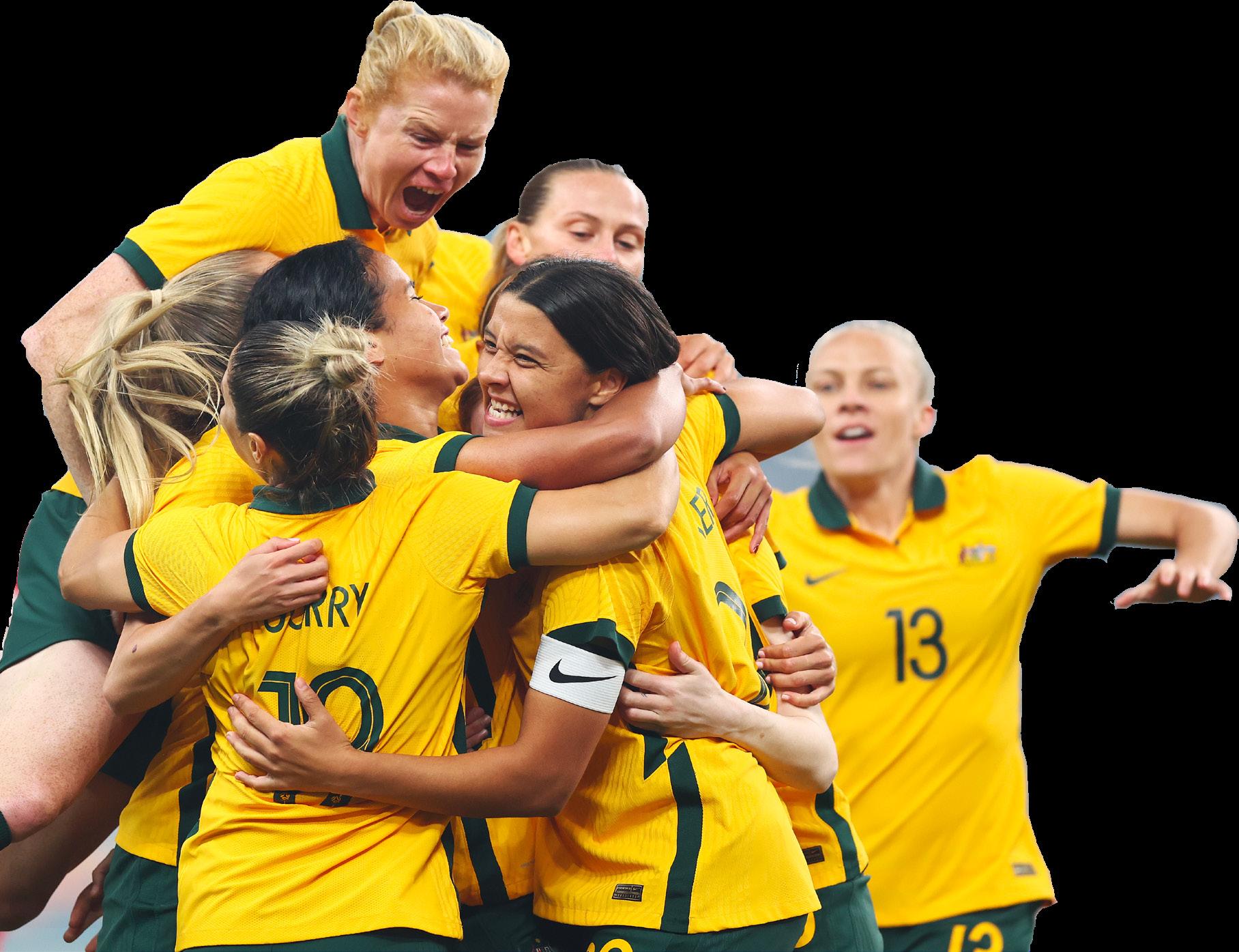
It does nothing to critique that, even if more opportunities were afforded to women, positions of power and authority would continue to be maledominated — such as 20 out of 32 teams in the Women’s World Cup being coached by men (including our beloved Matildas), and women representing only eight out of the 37 members in the FIFA Council.
It places the onus of responsibility onto women to succeed under the guise of “empowerment”, “freedom of choice”, and “equal opportunity”, rather than dismantling the actual system that prevents them from doing so — a sentiment highlighted by FIFA’s very president, Gianni Infantino, when he addressed women when speaking in Sydney: “You have the power to convince us men what we have to do and what we don’t have to do. You do it. Just do it.” Yeah, because women have definitely held the bargaining power over men throughout history, and it should definitely be our job to prove ourselves to change their minds about women’s inherent inferiority
I, like the rest of the nation, have thoroughly enjoyed the success of the Matildas and the sense of pride they’ve instilled, along with the newfound dialogues they’ve ignited regarding female recognition and gender equality. However, the Matildas’ achievements are not the feminist milestone they’re made out to be — only a testament to the sheer capability of women to excel in an inherently oppressive system when ‘the nation’ decides to get behind them. Until we address and dismantle the deeply ingrained sexism and misogyny within our societal structures, branding any achievement as “feminist” will not liberate you, me, or anyone else.
Matildas 19
‘Yes, the Matildas may be “empowering”, “inspiring”, and “liberating” — but framing their success as a high and mighty feminist endeavour completely renounces our structures of its flaws and ailments.’
President
LIA PERKINS
Hello! I hope you’re well. I don’t have as much to report as usual because I’ve been busy with elections. Stay out of the heat this week but don’t forget to vote in the SRC’s elections! You can read about all of the candidates in Election Honi.
Vice Presidents
DANIEL BOWRON ROSE DONNELLY
Dearest fellow students, With SRC elections and mid-sem exams upon us, it is safe to say that this is a pretty busy time for all of
Queer
This week, the biggest action was the student contingent to the stop coal seam gas rally. We heard speeches on campus, before the group caught a train into the city. It was awesome to hear speeches from SRC Welfare Officer Harrison Brennan, and Erin O’Leary on campus. As the climate crisis worsens, we need a just transition now. The Santos gas project in Narrabri has been rejected by Gomeroi people, yet the Labor government and private corporations and determined to push
ahead with it.
Excitingly the SUPRA X SRC petition for Concession Opal Cards for International Students and part time students will be live soon. We’re petitioning NSW Parliament, and believe they must listen to us as the cost of living crisis gets worse for students. Keep your eye out for that being posted on the SRC page!
Next week, the Times Higher Education Conference will be
happening at USyd. The Education Action Group has organised a counter event, ‘Time’s Up for the Corporate Uni’ fb.me/e/1gWXHymiY. The counter event will address the corporate university system we have today –high fees, enormous class sizes and underpaid staff. If you want to hear the perspective from the SRC, at a time when some of the biggest University bosses worldwide are gathered, don’t miss this protest.
us. Remember to have your say in the SRC’s leadership for next year by casting your vote from 19-21 September!
Recent happenings include:
• In a meeting of Roses, Rose Donnelly and other Voice campaigners on campus attended a talk with Rose Jackson about the current Voice campaign.
• Thank you to those who have been expressing interest in FoodHub
volunteering! We are always looking for more volunteers so if you are interested in lending an hour or two during the week, please get in touch via email (vice. president@src.usyd.edu.au) or on our FBs.
• Other events attended include the Walk for Yes at Redfern Park, the march to Circular Quay for climate action on 15 Sep, and the Pinochet memorial at USyd’s Eastern Ave.
• USyd Students for the Voice also hosted a successful demonstration in the Quad, with Ben McGrory (SRC First Nations Officer), Bailey Riley (NUS President), and Ethan Floyd (Honi Soit Editor) speaking. A phone bank was also held in the New Law Annex.
Keep on keeping on, Daniel and Rose.
YASMIN
ANDREWS ELLA PASH JAMIE BRIDGE ANGUS MCFADDEN
Happy election, everyone!
QuAC’s August started strong with the student contingent to CARR’s LGBTQI+ rally. We also held our gender-affirmation supply drive, and are in the process of receiving the materials to be sent out.
General Secretaries
QuAC has had an extremely busy past few weeks especially, having held the “Whose Streets? OUR STREETS!” protest & party on Saturday the 2nd of September, with NUS Queer and Pride in Protest.
We organised multiple wheatpasting, postering and flyering sessions for it, and held an open event to paint the event’s main banner. We heard speeches from a number of speakers, including Queer Officer/QuAC coconvenor Jamie Bridge. The rally used the context of bigoted rallies and hate crimes on Oxford Street, and the
pretext of a party, to widen discussion out to demands relating to the passing the equality bill in full, genderaffirmation leave, the cancellation of drag events, sex worker protections and getting cops off Oxford St, both during Mardi Gras and throughout the year.
We also promoted a Radical Education Week panel organised by QuAC member Tim about queer rights and anti-discrimination law with Josh Pallas, president of the NSW Council for Civil Liberties.
The Equality Bill, a long-awaited
LGBTQIA+ rights bill addressing a shopping-list of community demands promised by Independent NSW MP for Sydney Alex Greenwich, was first leaked to activists a few weeks ago as a stripped-down bill focusing only on birth certificate gender recognition reform, a ban on conversion practices and a few other measures. However, in the wake of a sustained community/ activist response, the bill was revealed last-minute as now a much more complete package with sex worker protections and more. Let’s keep up the pressure!
Social Justice
TIGER PERKINS JASMINE DONNELLY
The Walk for Yes on the 17th was amazing. A true demonstration of unity, and an honour to be a part of. Vote yes this referendum on October 14, for a better and fairer Australia. It’s time.
Mature Age Students
The Mature Age Student Office Bearer position is currently vacant, and the void did not submit a report this week. Shame.
EDDIE STEPHENSON KIERA GARLAND JULIUS WHITFORTH JORDAN ANDERSON
The Social Justice Office did not submit a Report this week.
Disclaimer
These pages belong to the Office Bearers of the University of Sydney Students’ Representative Council.
They are not altered, influenced or otherwise changed by the Editors of Honi Soit
SRC Reports 20
Home Truths - The importance of completing a condition report for your rental property
Ask Abe
SRC Caseworker Help Q&A

Domestic Violence Support
Hi Abe,
I’ve been noticing some stuff in my friend’s relationship recently. Her partner is always putting her down in front of other people, and she recently told me she’s “not allowed” to go to our friend’s party. The other day we were meant to catch up for coffee and her partner randomly showed up and they left abruptly. What should I do?
Sincerely, Worried
Dear Worried,
What you’re describing sounds like it could be coercive control, a subtle form of domestic violence. The next time you see your friend you can ask how things are going. Avoid intervening in a way that escalates the situation or causes your friend to isolate herself. She needs you to be her friend in a non-judgemental way. If she wants immediate support, call 1800 Respect (1800 737 732). For more information on how to support a friend in this situation check out the resources on the Dept of Community Justice website
Sincerely, Abe
Do you want to save hundreds of dollars by taking a few photos?
When you move into a rental property from a real estate agent, you should be given a Condition Report. This lists each room in the house and states whether things are clean and working, e.g., carpets, lights, and oven. Most real estate agents are lazy and sometimes a bit dishonest, when it comes to the condition report and will say that everything is clean and working. You will have seven days to make any corrections, saying where things are dirty or broken. If it is at all possible, complete your Condition Report before you move your things in. Test every power point, every light, and stove/oven. Check that the underside of the blinds, the inside of the oven, and light covers, are clean. If you do not state that something was dirty or broken in your correction of the Condition Report, you will be responsible for getting it cleaned or fixed, regardless of whether it was dirty and broken when you moved in. Report it, even if you don’t care whether it is clean or working.
If you are renting from someone other than a real estate agent, you probably will not have a condition report. Instead, you can send the landlord an email listing anything that is dirty or broken. This is better than using social media messages, as it is clearly timestamped, and viewed by the tribunal as being a written form of communication.

Take
Take photos. Lots of photos. This will help you to prove what you have said in your condition report or email. Everything that is dirty or broken should be photographed. Email those photos to yourself, even if your phone gives a timestamp. If you need to go to the tribunal to claim back your bond, you will have irrefutable proof of the condition the property when you moved in.
After you move out, take lots of photos showing that you have left the property in a clean state. Include photos of the floors, walls, windows, lights, stovetop/oven, bathtub, toilet, sinks, cupboards, lawn, garden beds, etc. Again, email them to yourself so that they are timestamped. That way, if the property is dirtied or something breaks after you have left, you will not need to pay for that damage.
If you have any questions about getting your bond/deposit returned, or any other accommodation question, ask an SRC Caseworker We’re happy to help.

If you need help and advice from an SRC Caseworker, start an enquiry here. Scan the QR or go to: bit.ly/SRCcaseworker



SRC Caseworkers 21
you need to apply for Special Consideration for
caseworkers can provide advice on applying for Special Consideration & appealing rejected applications. contact a caseworker bit.ly/SRCcaseworker srcusyd.net.au 02 9660 5222
Do
illness, misadventure or disability? SRC
Department of Community Justice website: Help someone experiencing domestic violence
lots of photos. This will help you to prove what you have said in your condition report or email. Everything that is dirty or broken should be photographed.
Omega Crossword

Down
1. Witch’s pot (8)
2 ? Stylish as one from Araby, they say (4)
3. Ukrainian port (6)
4. This very paper (4)
5. Santa Claus (6,9)
6. Uni building holding Courtyard café (5)
7. Enthusiastic search for Au (4,4)
8. Uni building near Parramatta Rd Footbridge (3,3)

9. Higgledy-piggledy (5-5)
10. Greek cheese (4)
16. Pink parrot (5)
17. Uni building in Picture C (7)
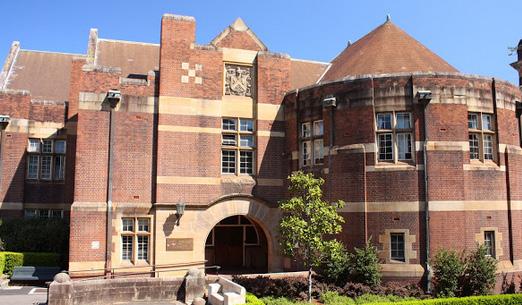
19. Uni building in Picture D (7)
20. Those who smuggle illicit substances (4,11)
22. Uni building famed for its gloryhole, on 25 Down (7)
23. Builder’s headwear (4,3)
25. Uni’s main pedestrian thoroughfare, ... Avenue (7)
27. Jaffle (7)
30. Metaphors, fables (10)
33 ? Clean inside mandarin segments (5)
35 ? Alec has a drink (8)
36. Polar opposites, highs and lows (8)
38 ? What a general keeps up his sleevies (6)
40. Uni building in Picture E (6)
41. Uni building over near the colleges (5)
43 ? $1 car (4)
45. Cloak (4)
46. One hundredth of a dollar (4)
Across
11. Side dish made of puréed root vegetables (6,6)
12. Witness (8)
13. Metalworker (10)
14. African island, bad movie (10)
15. Clever people who get computers to do tricky stuff (11)
18. Not in the CBD (3-2-4)
21. Protestant religious institution (8,6)
23 ? It is in this genre (6)
24. An Iberian Jew (8)
26. Block of precious metal (5)
28. Lorde song (6)
29. Jewish father and fatherland (6)
31. Swamp beast (5)
32. Receptacles for cigarette debris (8)
34. Uni building in Picture A (3,3)
35. Uni feature in Picture B (8,6)
37. Mysterious (9)
39. Unintended consequences (especially of medicine) (4,7)
42 ? American city holds Christian ceremony of love? (10)
44. Soviet leader, Nikita ... (10)
47. Indolence (8)
48. Body of water in between North and South America (9,3)
Quiz
Crossword by Some Hack.
Quiz and Word Search by Tournesol.
All done? Find the answers at honisoit.com/puzzle-answers.
Q1. Champagne is a variety of sparkling wine that is solely made in what region of France?
Q2. Micheal Jackson’s first performance of his signature Moonwalk was during a live 1983 performance of which of his hit songs?
Q3. A previously undiscovered copy of Dante’s Divine Comedy was found in
what Sydney library in 2017?

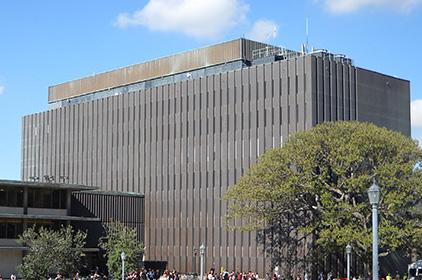
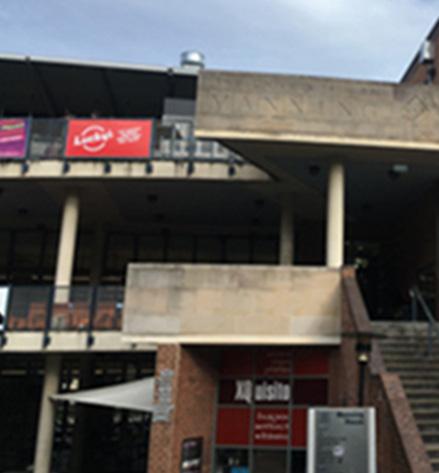
Q4.According to Mbube, The Weavers, Nysync and most famously The Tokens… who sleeps tonight?
Q5. Which Priest and Scholar posted his 95 theses on the door of the Castle Church in Wittenberg in what would become a defining moment in the Protestant reformation?
Q6. What connects the previous answers?
Puzzles 22
Image A
Image B Image C
Image D
Image E
TheDailyFemale
IN THIS ISSUE:
Chris Minns commisions new review into NSW public hospital funding: ‘The other three weren’t moving fast enough.”
Annamarie Jagoise found in Qantas Chairman’s Lounge
Mark Scott announces new 5-year plan for USyd: “The University must defend itself from foreign aggression.”
RBA demands action on inflation crisis, calls for increase to gender pay gap
CHRIS
Horoscopes
Tanya Plibersek - Sagittarius
Like an archer you wield your bow and aim straight for the heart, but make sure to sigh and say it’s ‘not your time’ before you shoot. As long as you make sure to walk back those old comments on Palestine, you too can be in charge of rubber stamping every proposed Coal and Gas project in the state!
Anastacia Palaszczuk - Leo

Step out boldly, you little Lion, and lock up some children using morally dubious parliamentary powers. Boldly go where none have gone before by actually taxing fossil fuel companies, and don’t step down when your approval numbers wane because mother knows best.
Jacqui Lambie - Pisces
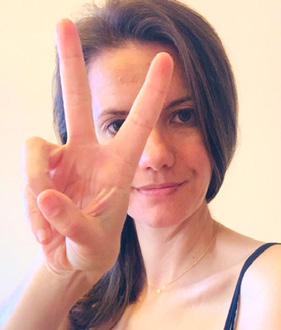

Like a fish you flop around and struggle to find true friends, but like Lambie in Palmer United, you’re best off on your own following your true self. You’ll get used to those tearsachieve your dreams of starring in the next celebrity reality show. Just try not to comment on the Islamic world.
Penny Wong - Scorpio

Fierce like a scorpion, pierce hearts while the legislative council is in retrograde. Make sure to always be a people pleaser; you can recognise Palestine, but always stop halfway. What use is action when you have words, and you can play both sides?
Jenny Leong - Virgo
We appreciate the Perfectionist soul of the Virgo, always willing to go above and beyond for the best protest speech. Virgos will Abolish the Colleges <3 - the date for the Virgos sit-in of St Paul’s formal dinner is to be announced.
Pauline Hanson - Gemini

Like Pauline you defy the stereotypes. Rather than being two faced, you are bold in showing your beliefs. Like the twins of the stars, you do the work for two replacing Mark Latham as chief bigot in Parliament. One Nation is now truly the party for Girlbosses.

Julie Bishop - Cancer
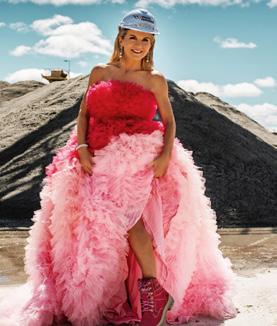
Time to crab strut your way through ANU campus, you succeeded, you’re now Vice-Chancellor girlie pop. You must be feeling like a big fish in that small pond of PPE students - but don’t feel too down about your exworkplace around the corner.
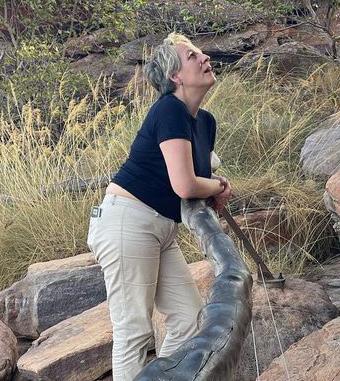
Moira Deeming - Aquarius
Aquarius’ think outside the box, just like how you are an independent thinker compared to the rest of the Liberal Party which you’re totally still a part of. They’re also quirky, so make sure to get creative with who you associate with; just try not to get caught!
University activists decry ‘Champaign Socialist’ accusations: “We only drink Vodka Cruisers” Petter Dutton hits back at accusations of misogyny towards the Liberals: “We have effective nepotism systems in place for all genders.”
Kristina Keneally - Taurus
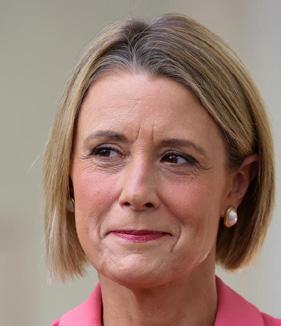
Taurus’ are very down to Earth, so make sure you get parachuted into a safe Labor seat in the following federal election, what could go wrong? Make sure to stay stubborn and keep running for elections even if you never win, you’ll always have a safe place as a party bureaucrat anyway!
Sarah Hanson-Young - Capricorn

Your pragmatic sensibilities led you to be the youngest elected Senate member ever, until Jordan Steele-John came around. But don’t worry, you’re still the Greens environment spokesperson, just like you were Environmental Officer at the Adelaide Uni SRC. Dreams do come true, so make sure to girlboss your way to making wage theft illegal!
Rose Jackson - Aries
As a former USYD SRC and National Union of Students President, you know what it takes to appeal to the young electorate. Always be mercurial; why not support the Coalition in opposing eviction bans during COVID and back anti-protest laws? You’re an Aries, and nobody can ever win an argument against an Aries!

Julia Gillard - Libra

You found balance and reached a goal for many of us, delivering a famous sexism and misogyny speech to Tony Abbott. To support that balance, you also made sure to cut funding to single mothers at the same time. Never go too far, you’ll be a feminist hero!
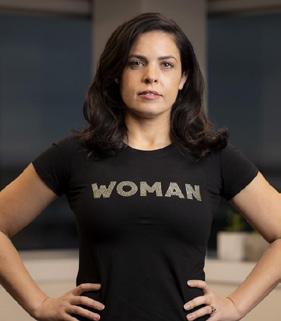
23
Wed Sep 20 Vol. 121 Now with a free tampon inside!
Women’s Republic of USyd. $20
MINNS AND ANTHONY ALBANESE ARRESTED FOR PUBLIC LEWDNESS DURING ‘LGB WITHOUT THE T’ PRIDE MONTH
Voting will be open on September 19, 20 & 21








All Sydney University undergraduate students who are currently enrolled are eligible to vote in the upcoming 2023 SRC elections. For more info see: bit.ly/SRC-vote
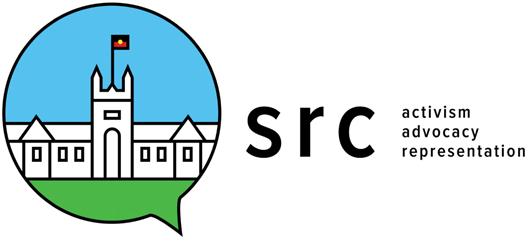













































2023 Polling Booth Times and Locations









































p: 02 9660 5222 | w:
Authorised by R.Scanlan, 2023 Electoral Officer, Students’ Representative Council, University of Sydney
srcusyd.net.au/representation/elections
POLLING TUE 19TH WED 20ST THURS 21ST LOCATION SEPT 2022 SEPT 2022 SEPT 2022 Jane Foss Russell 8:45 – 17:15 8:45 – 17:15 8:45 – 17:15 Fisher No polling 8:45 – 17:15 8:45 – 17:15 Manning House No polling 10:45 – 15:15 No polling Conservatorium of Music No polling 10:30 – 15:30 No polling Susan Wakil Health Bldg No polling No polling 10:45 – 15:15 Peter Nicol Russell Bldg No polling No polling 10:45 – 15:15
Students’ Representative Council, University of Sydney 2023 Elections
More information available on the SRC website: bit.ly/SRC-vote
VOTE!


























 Eloise Aiken
Eloise Aiken












































































































